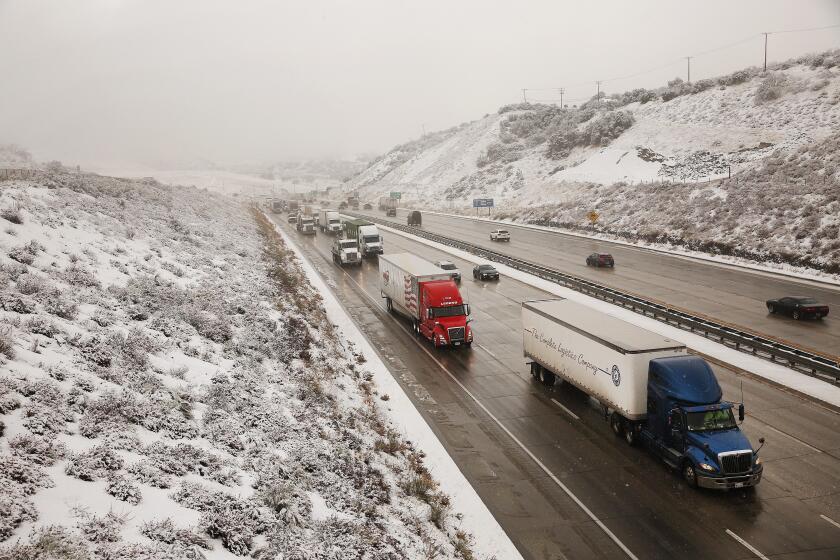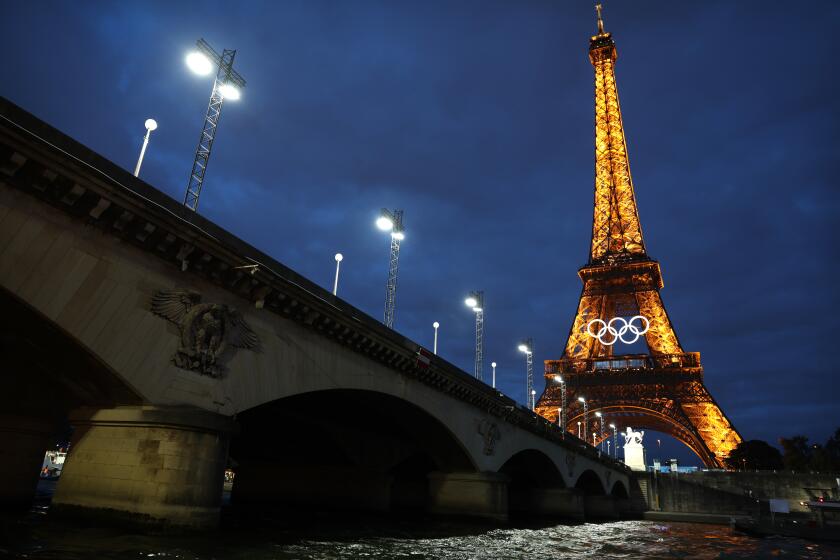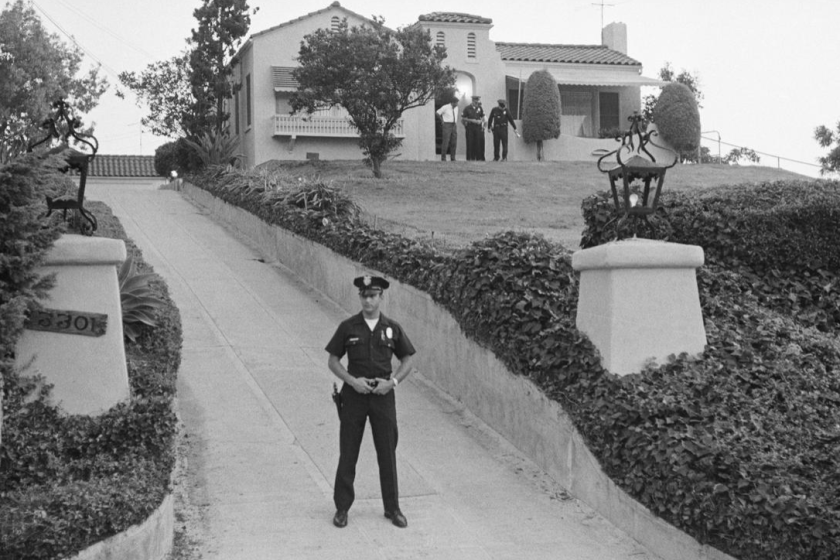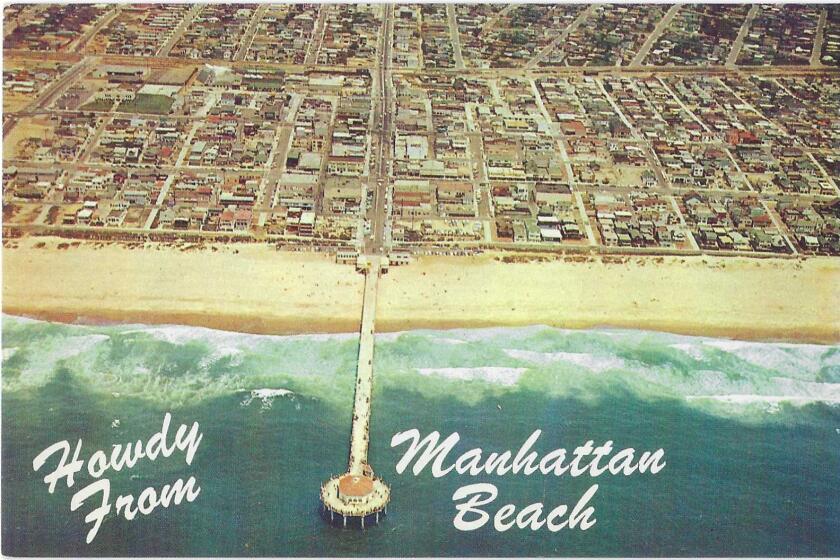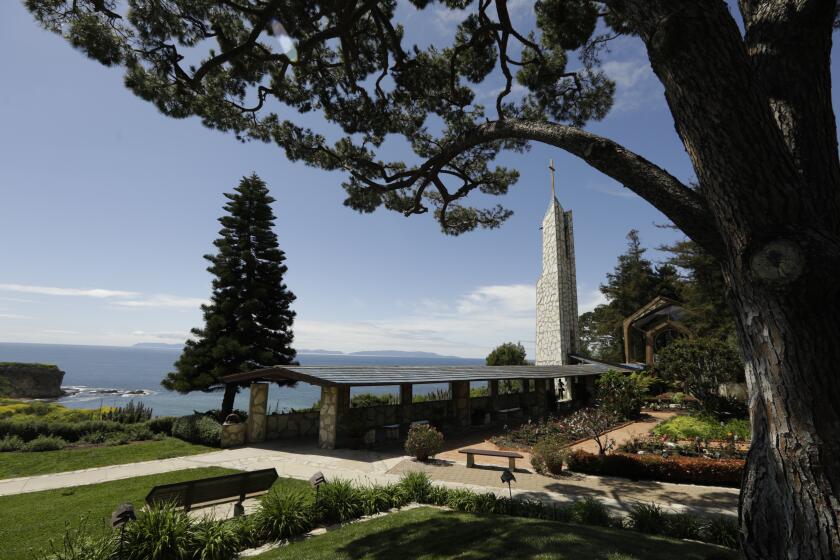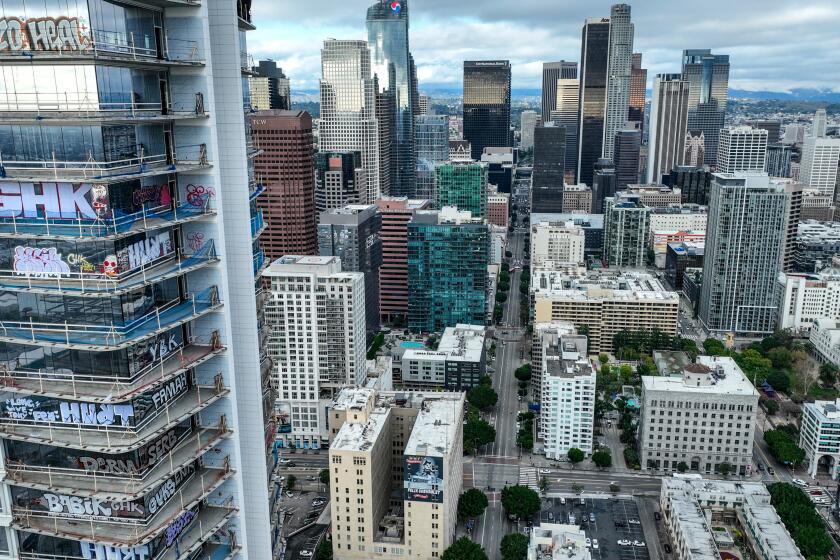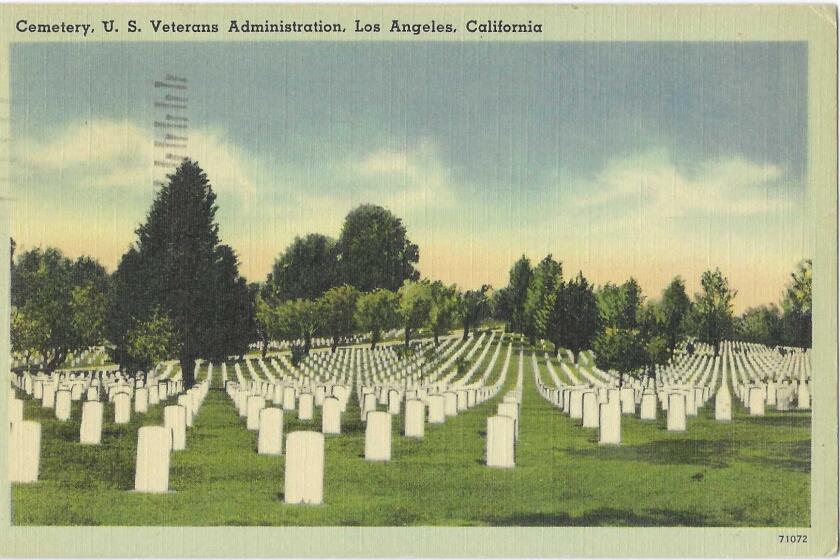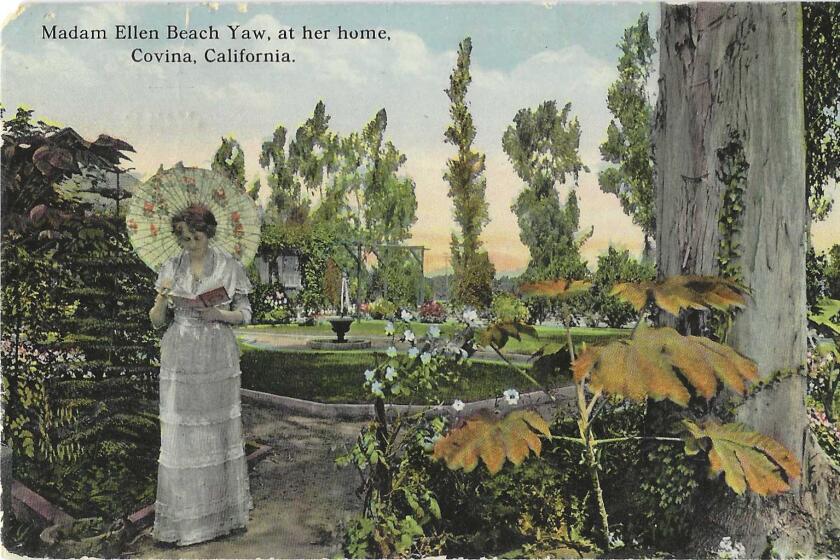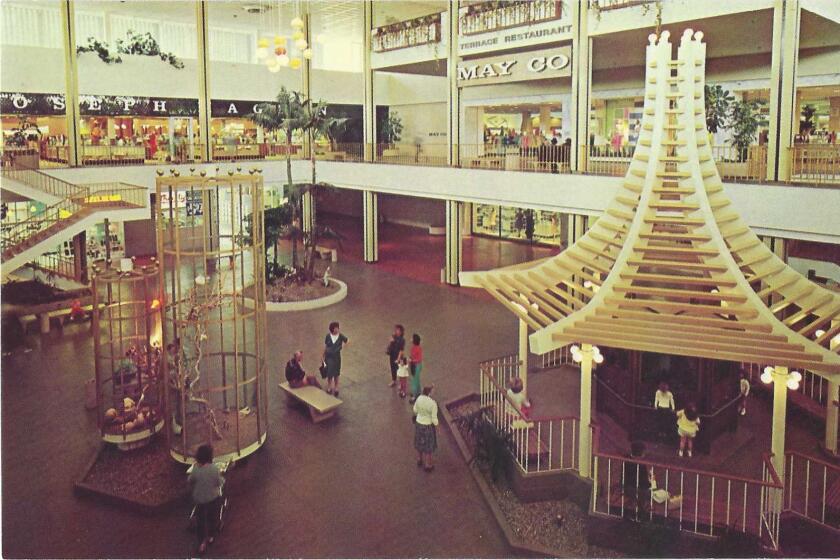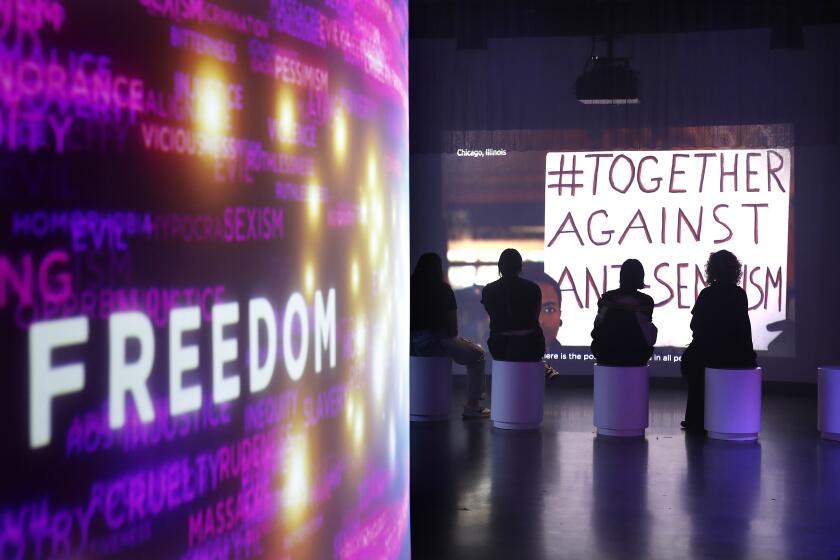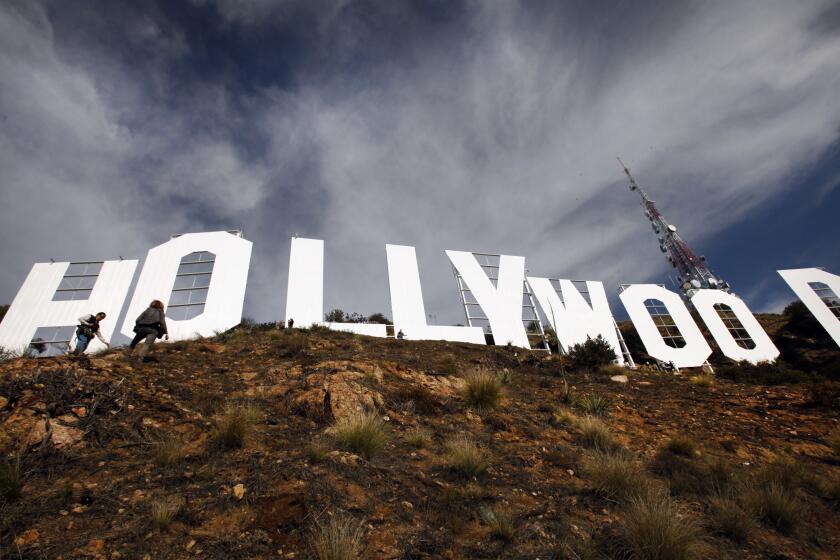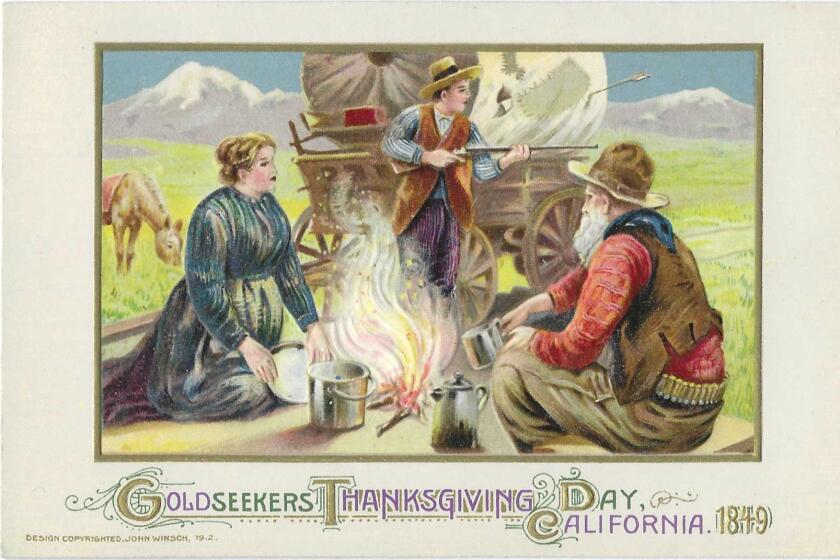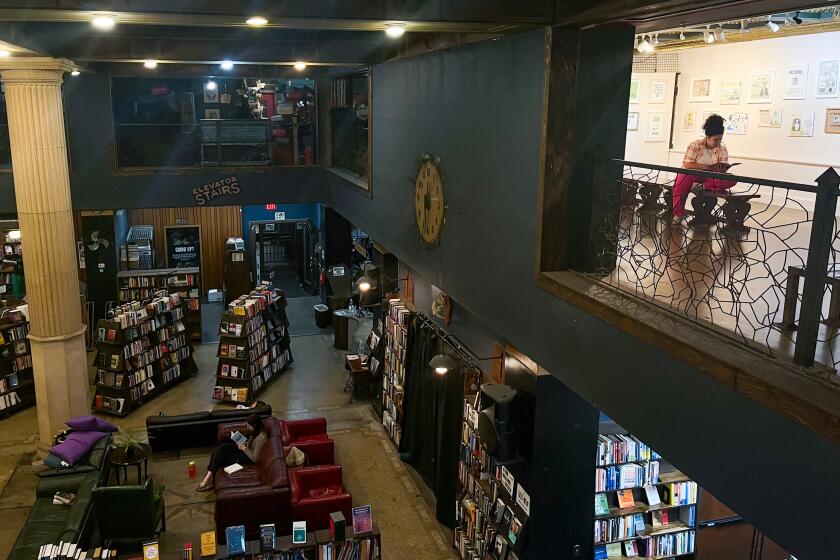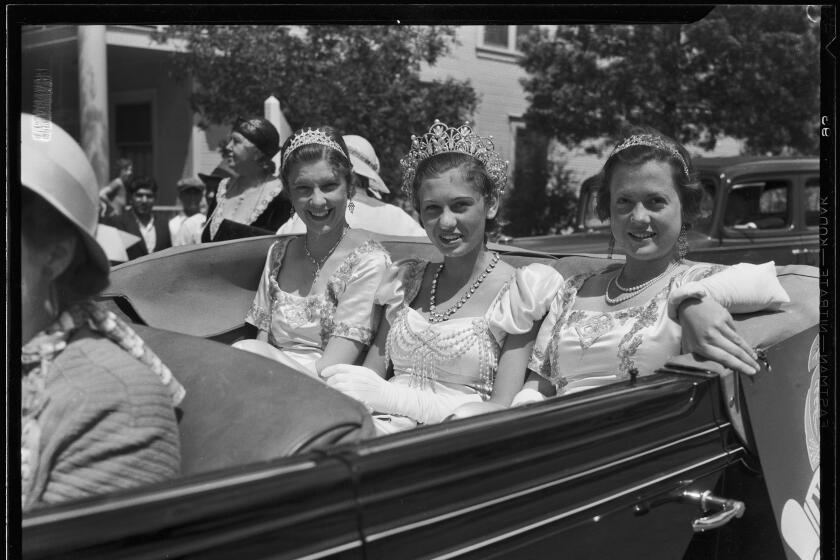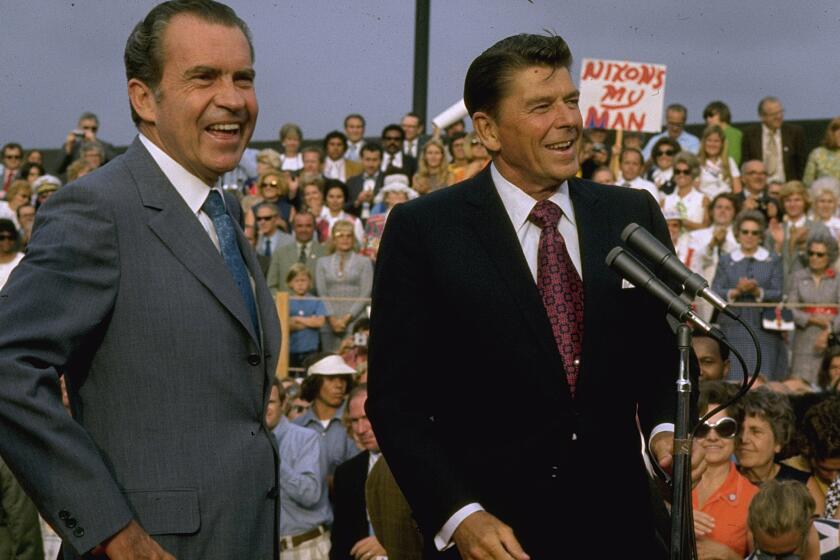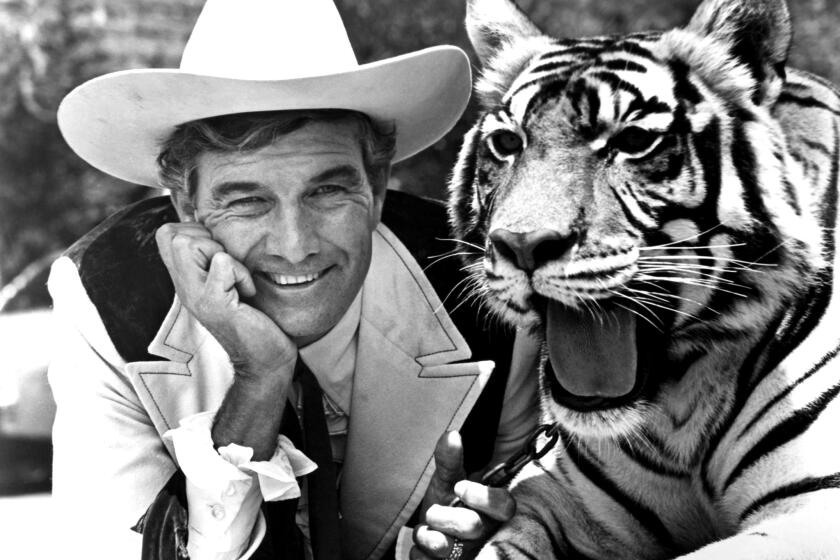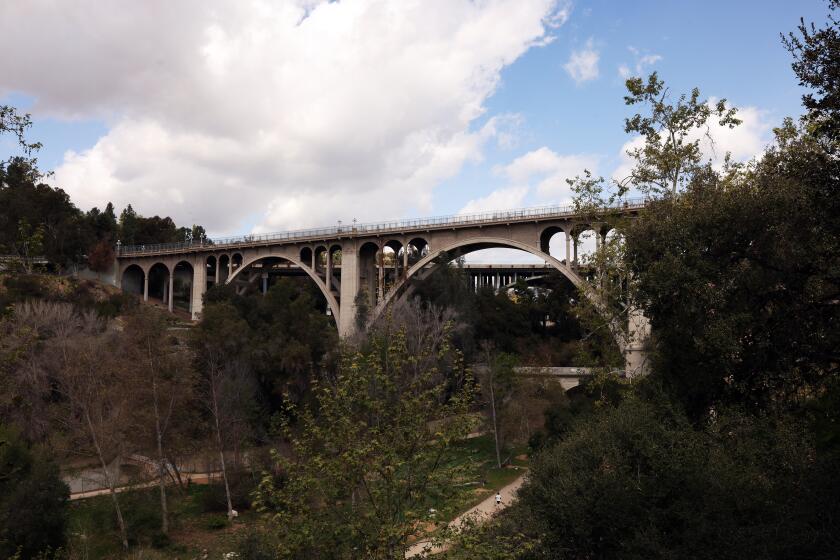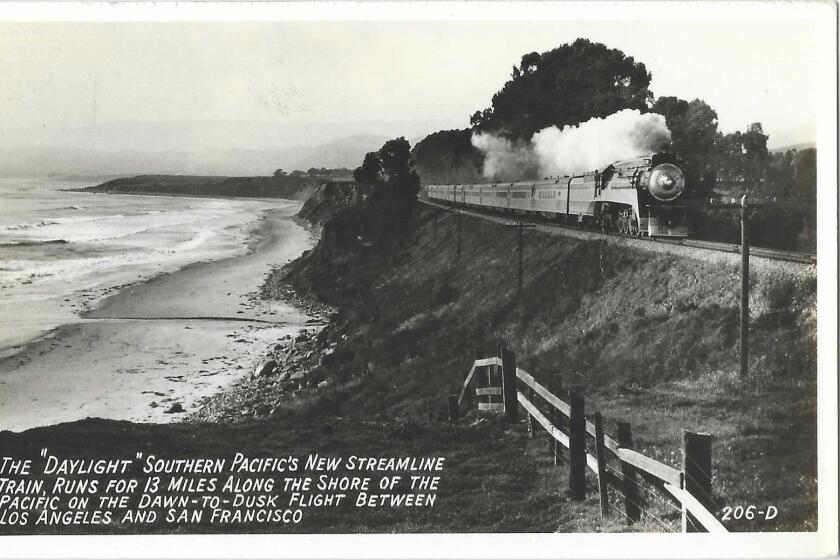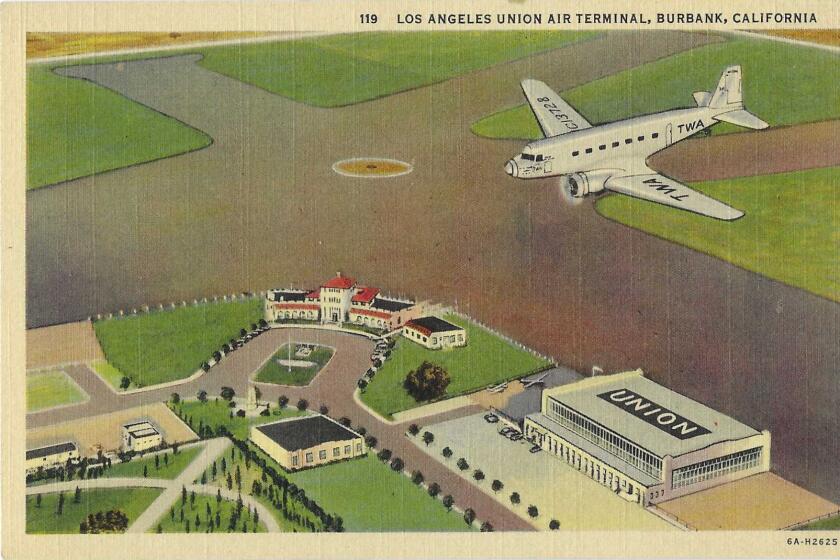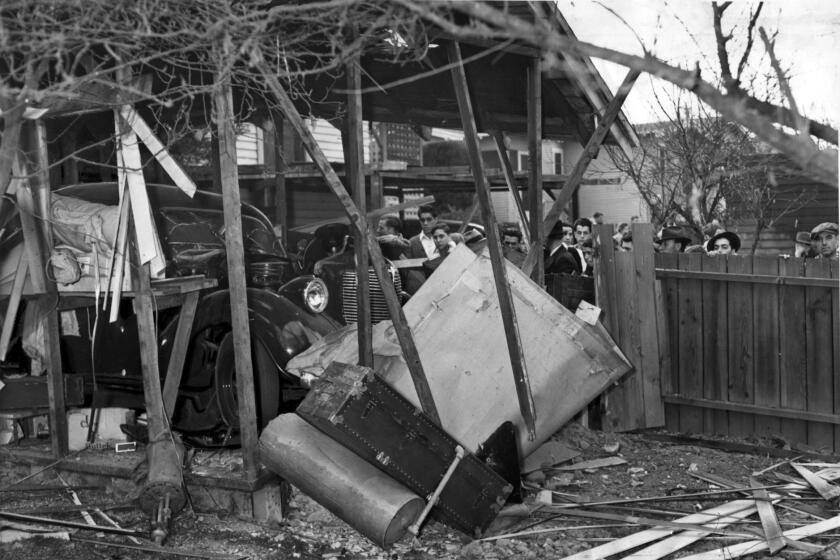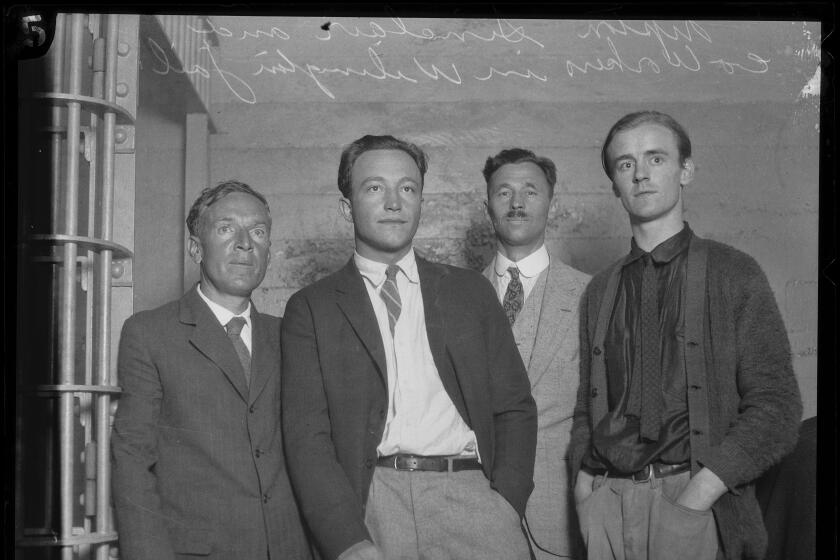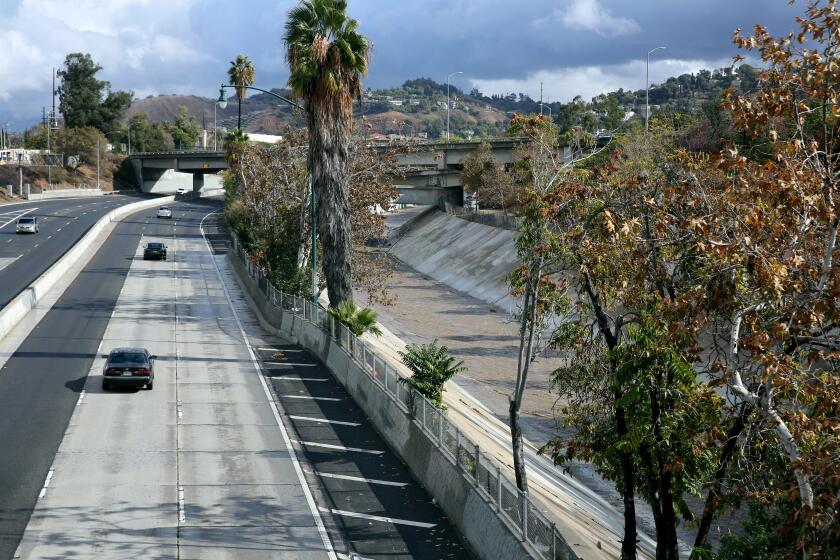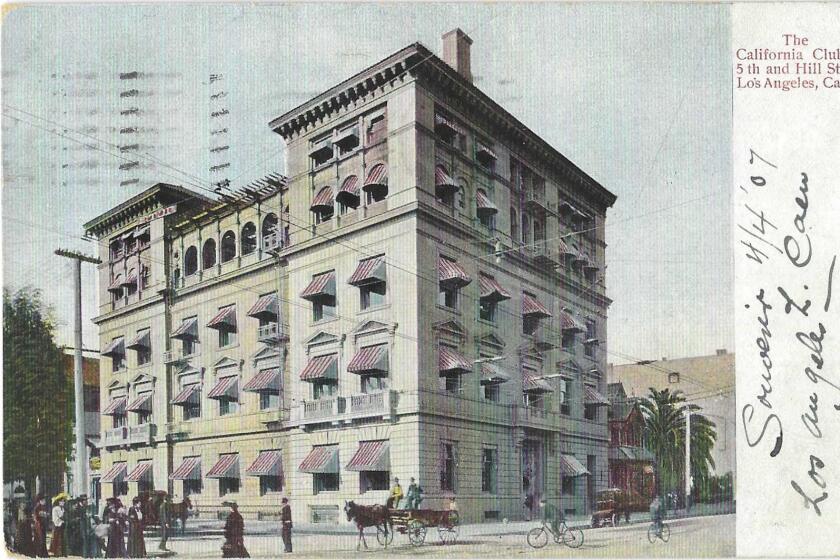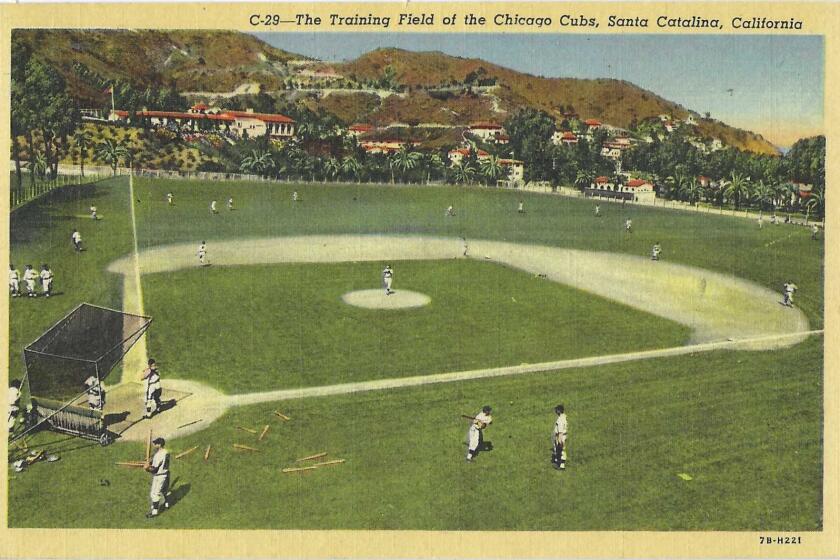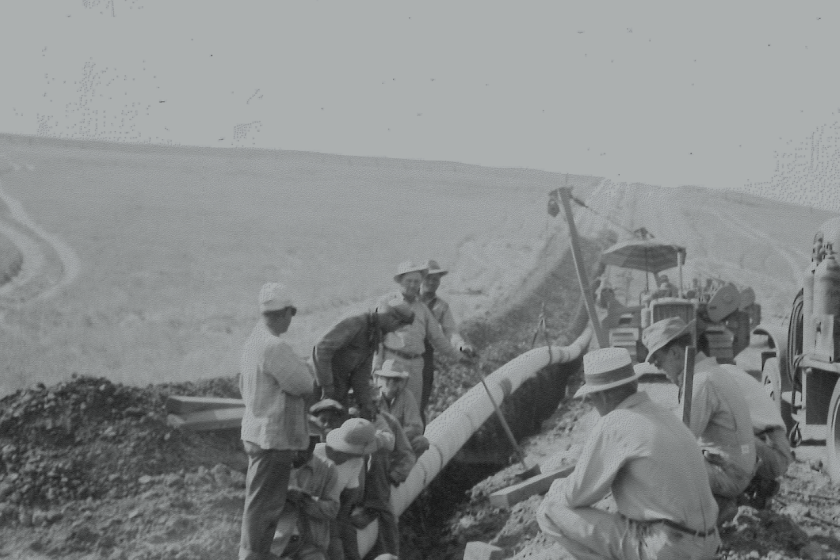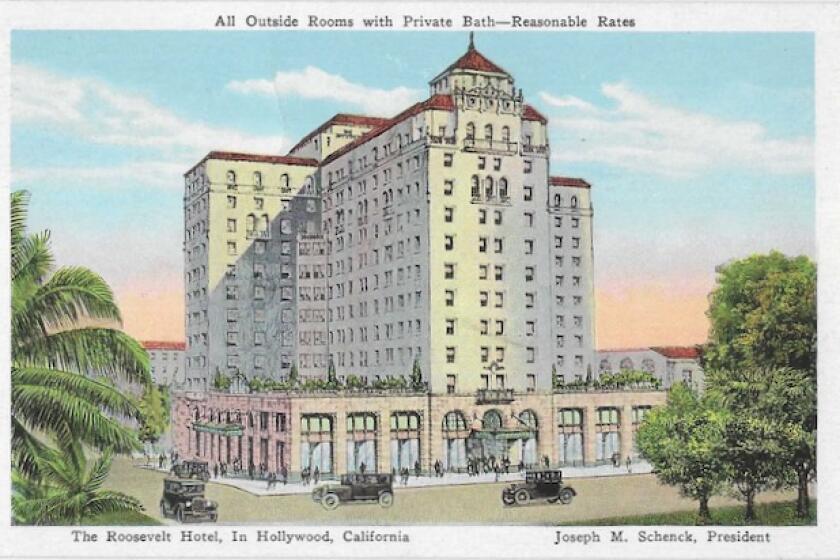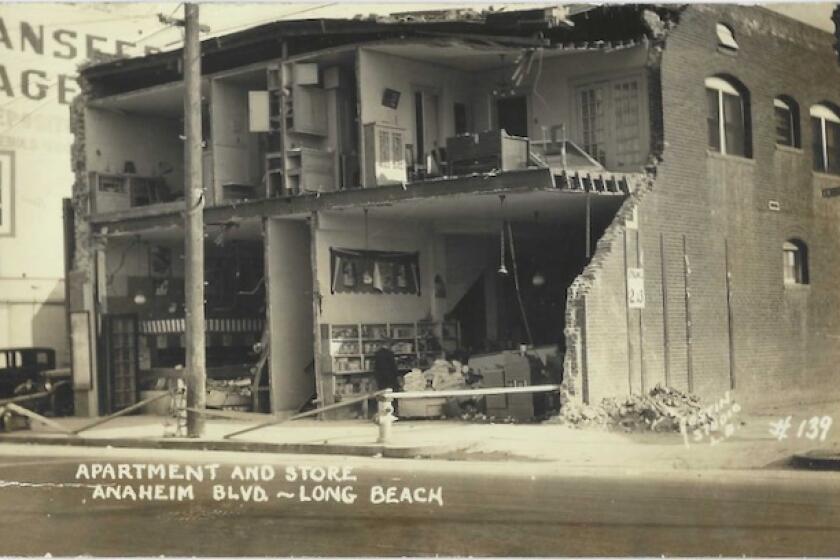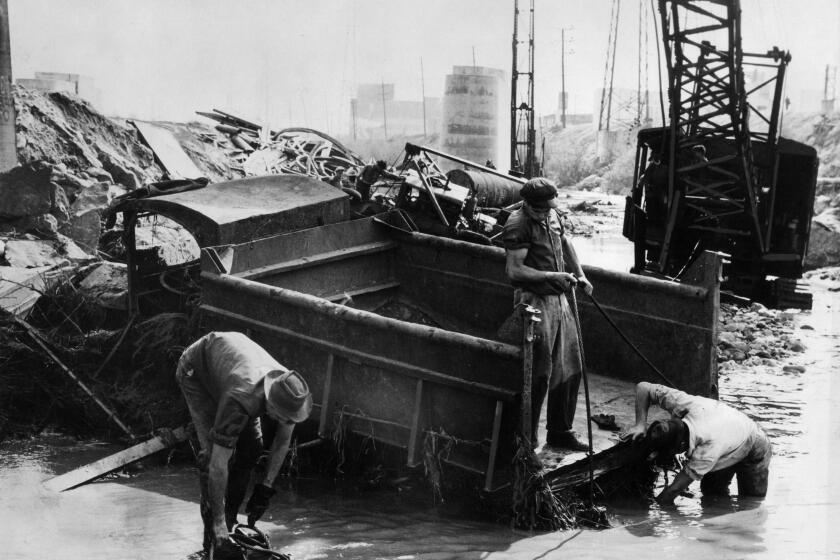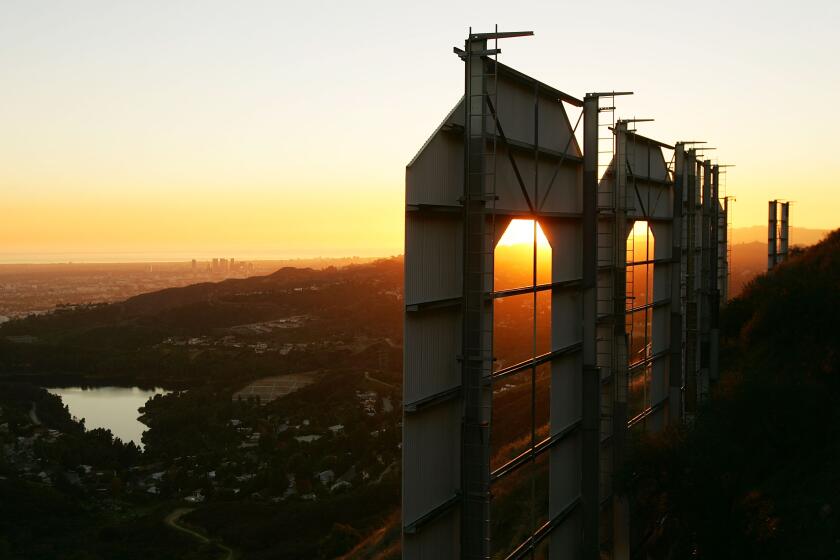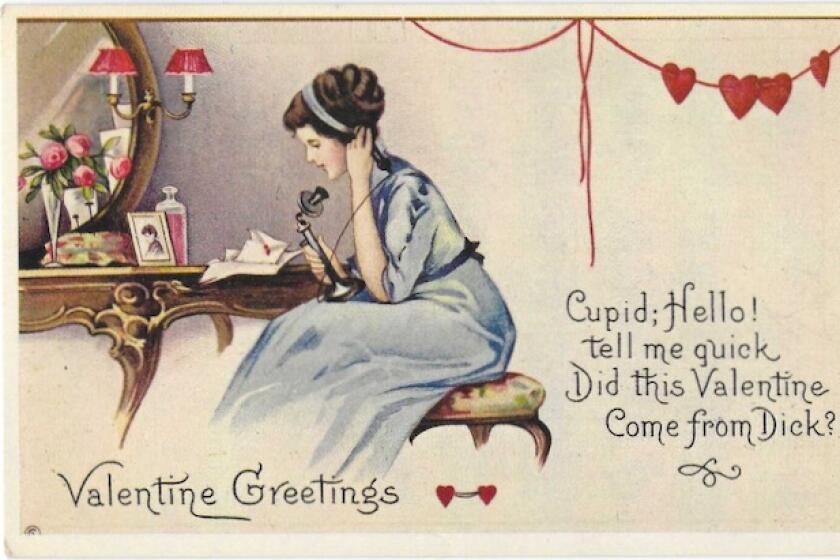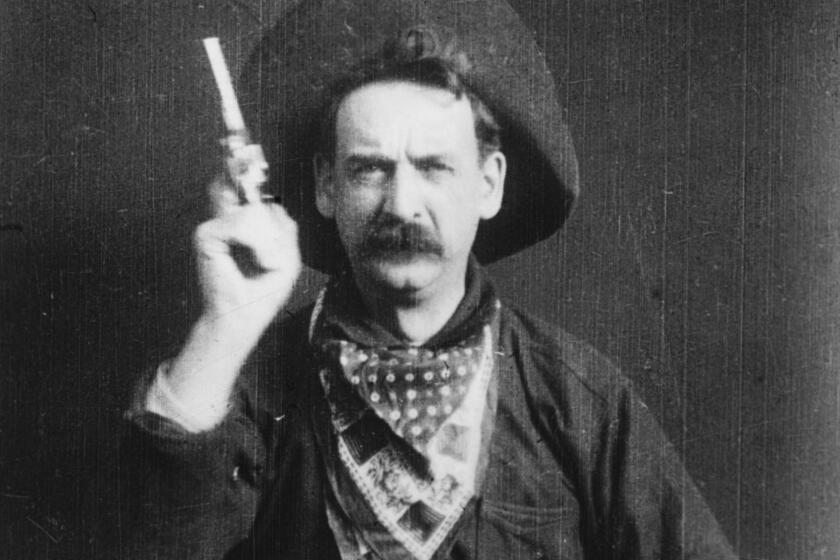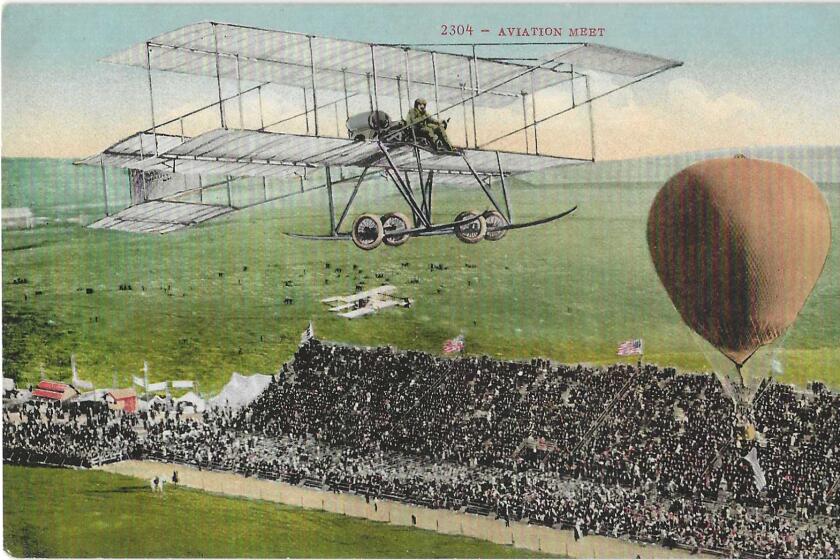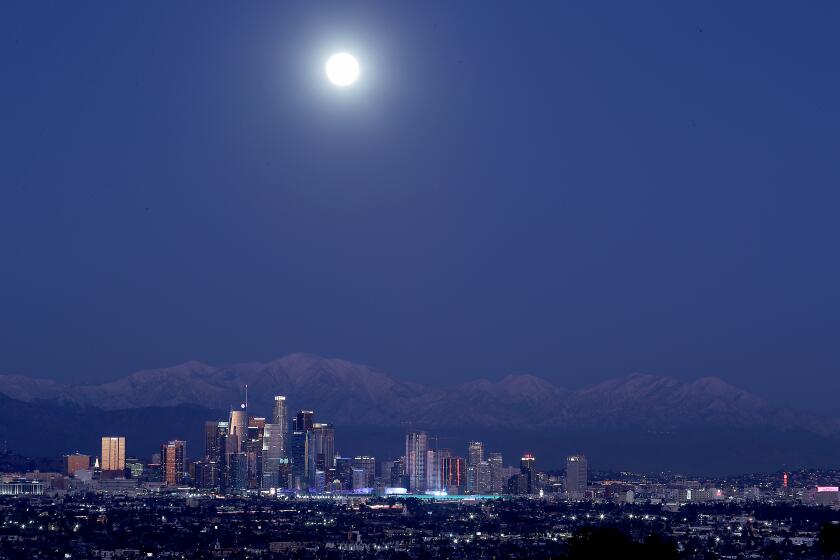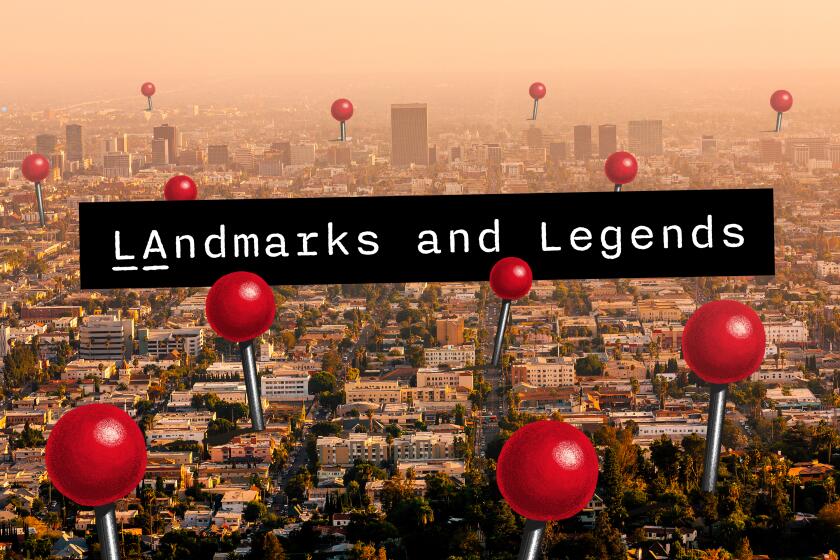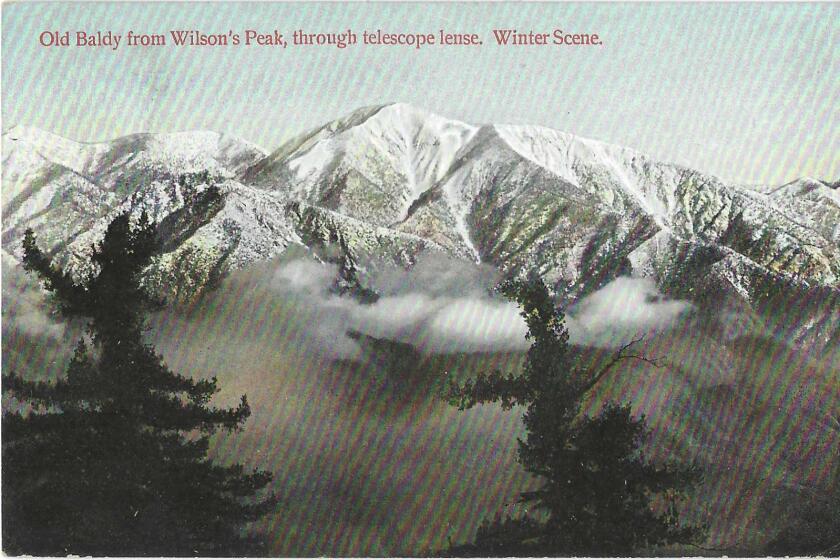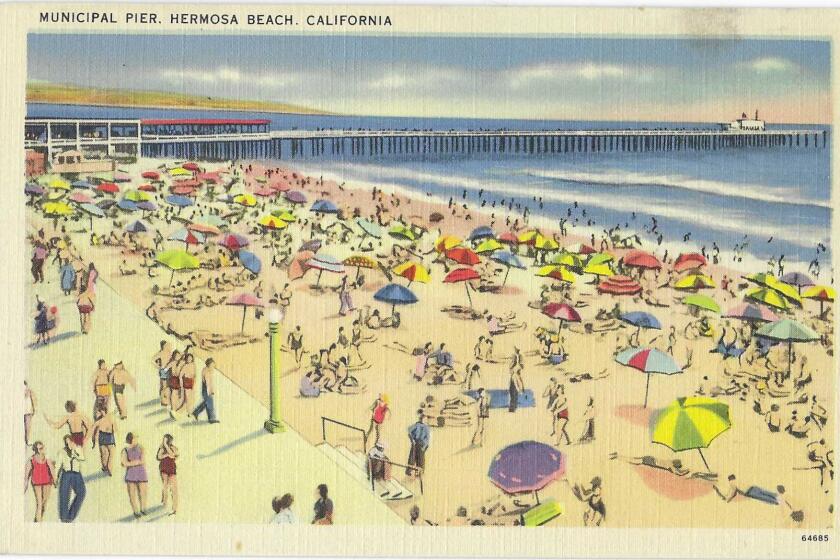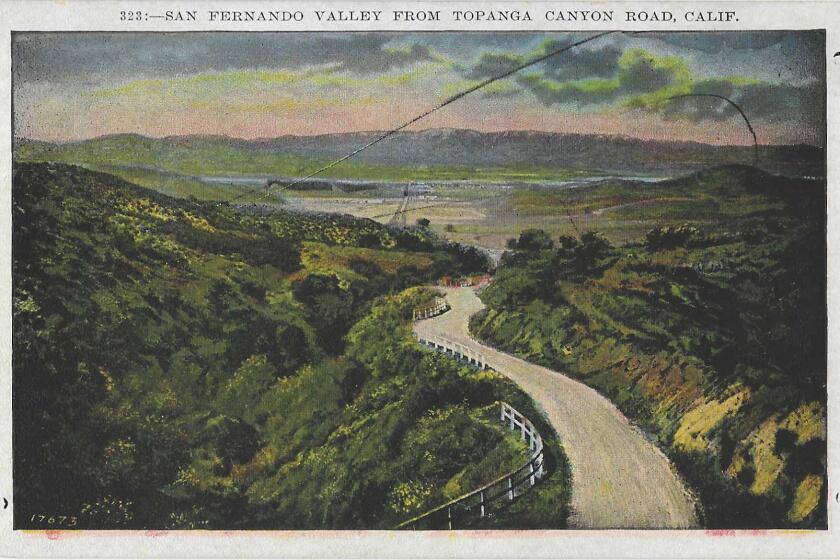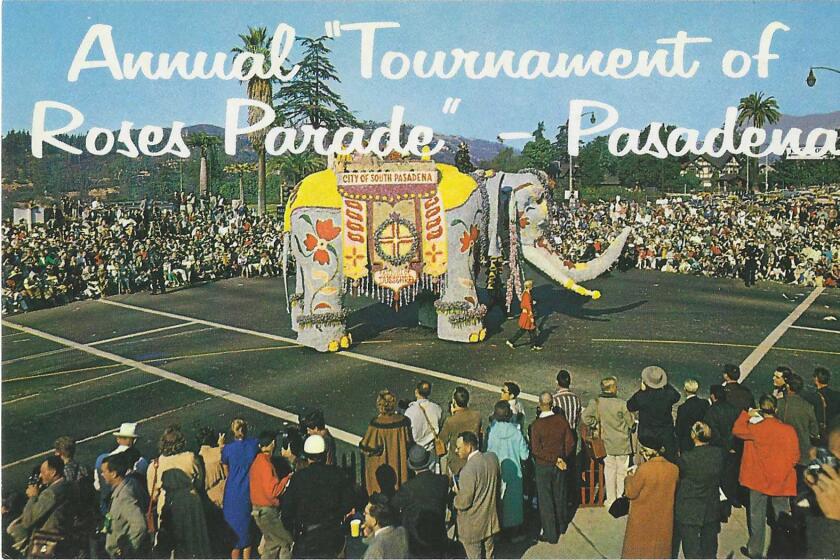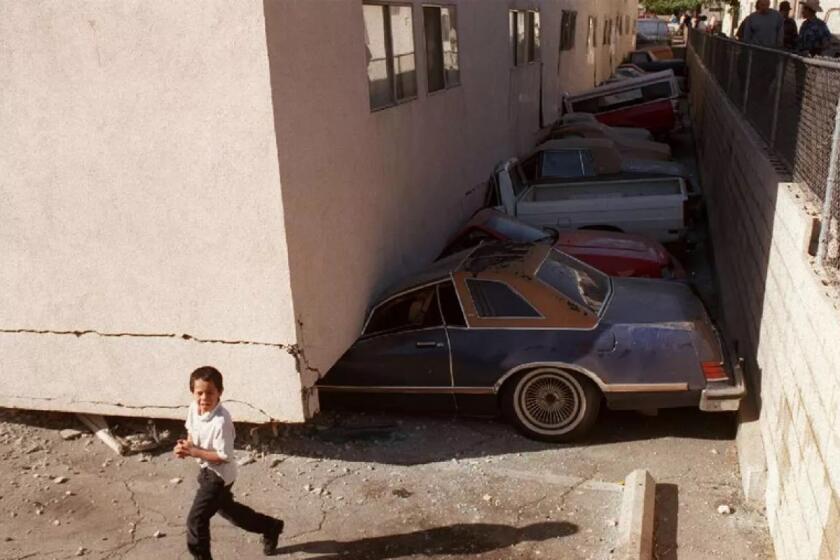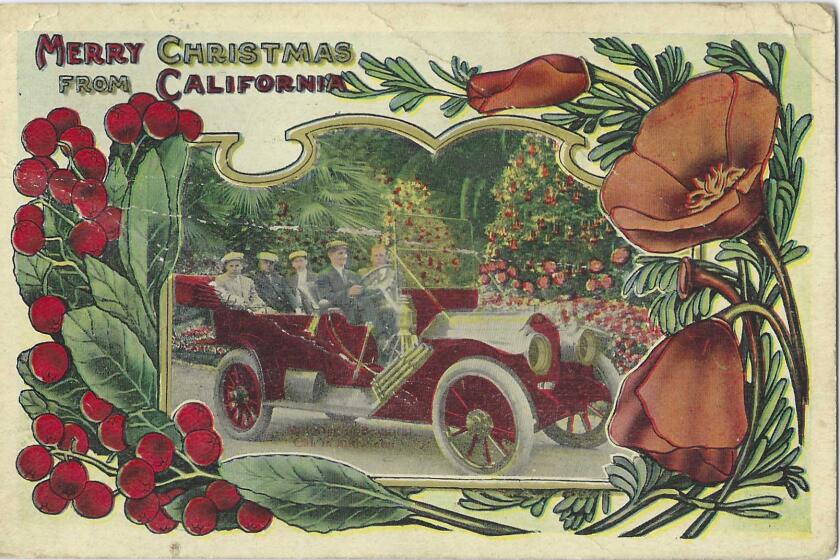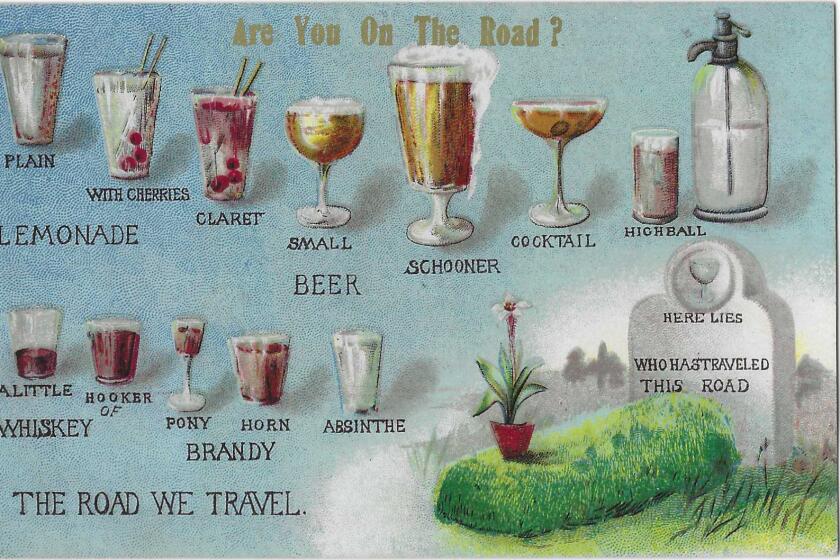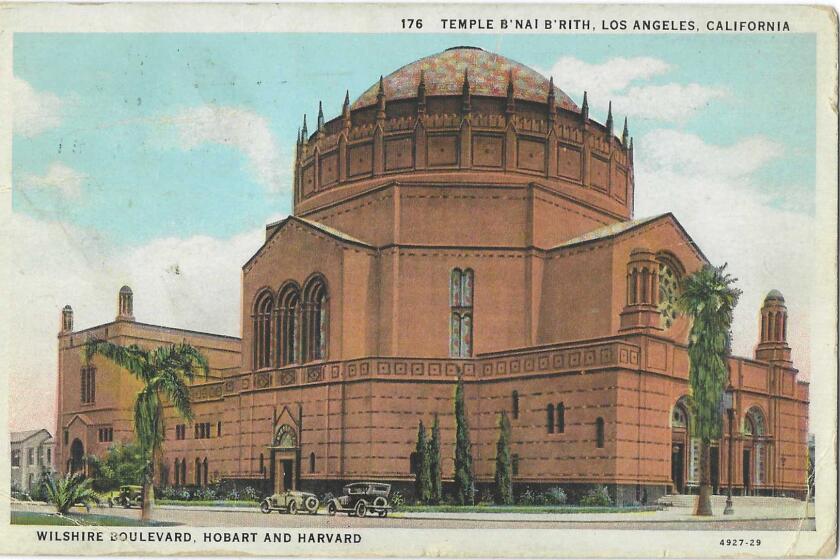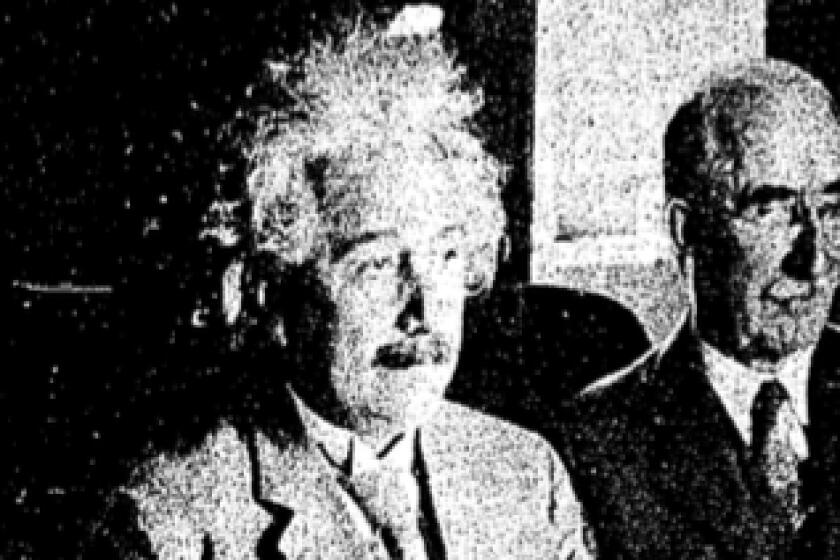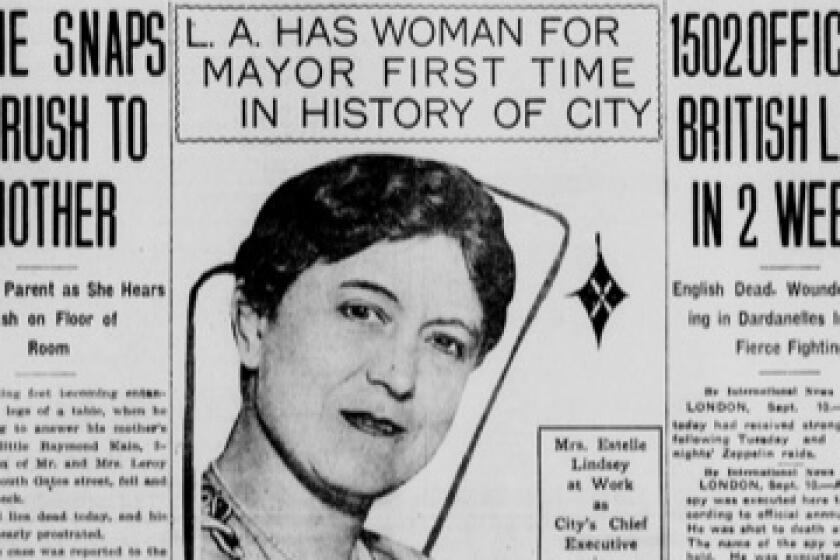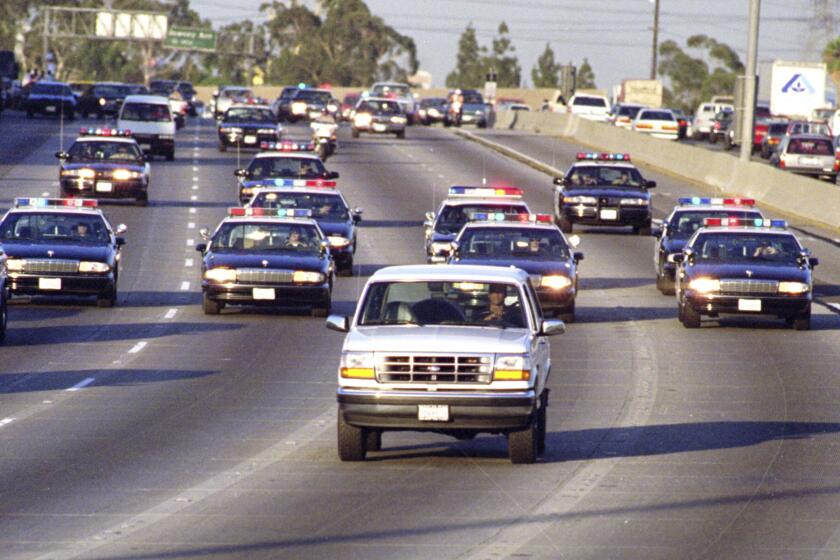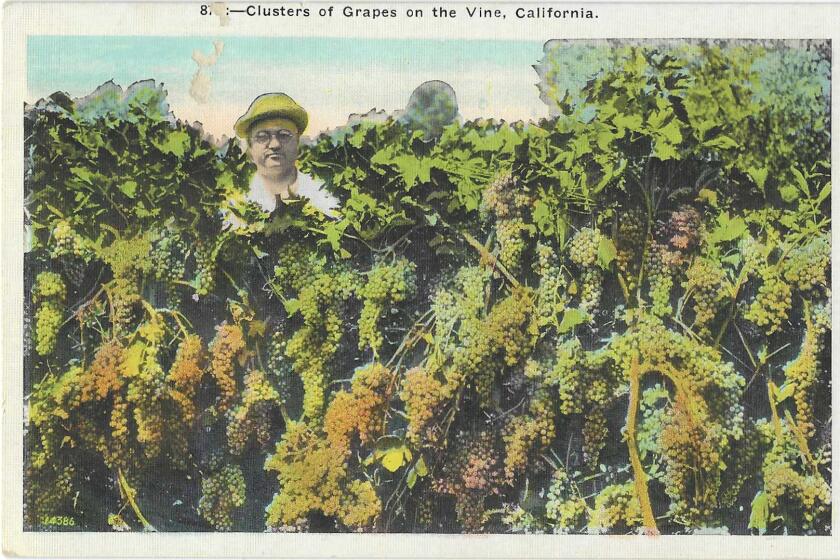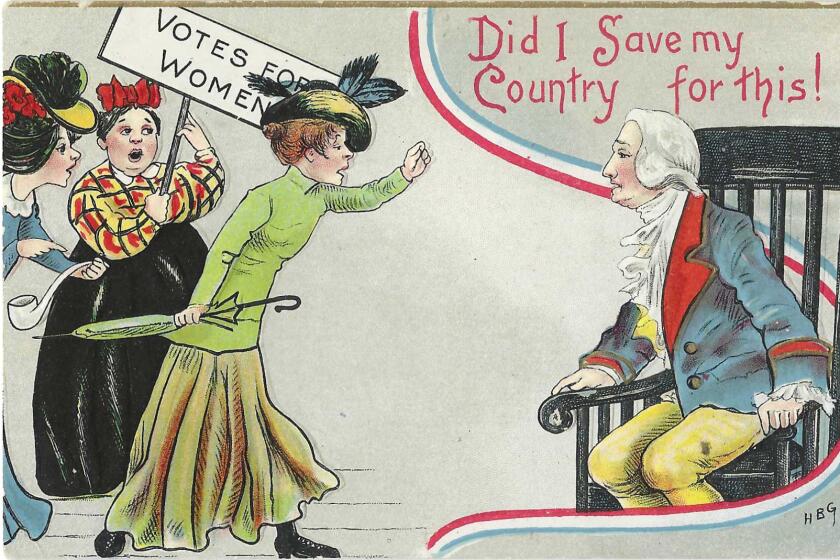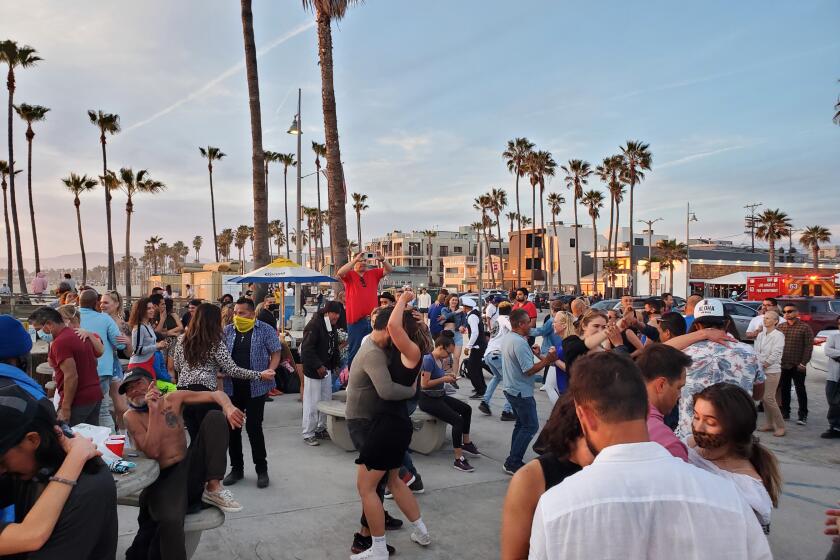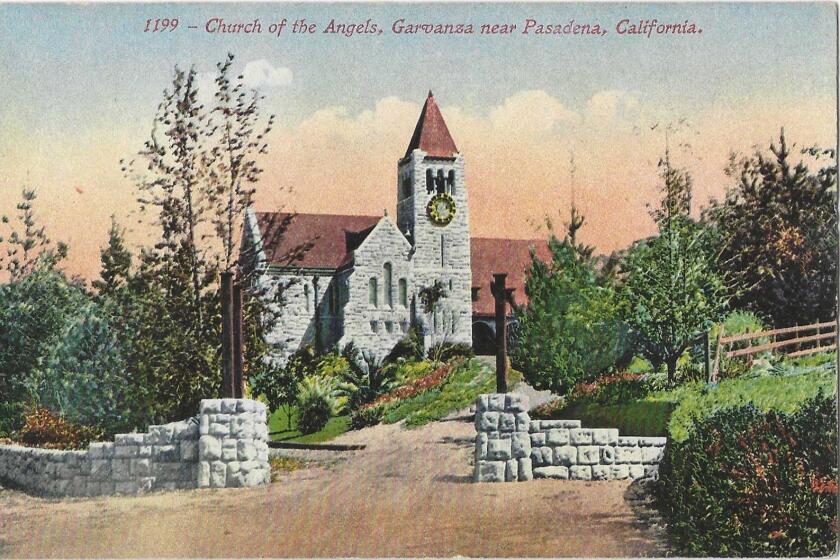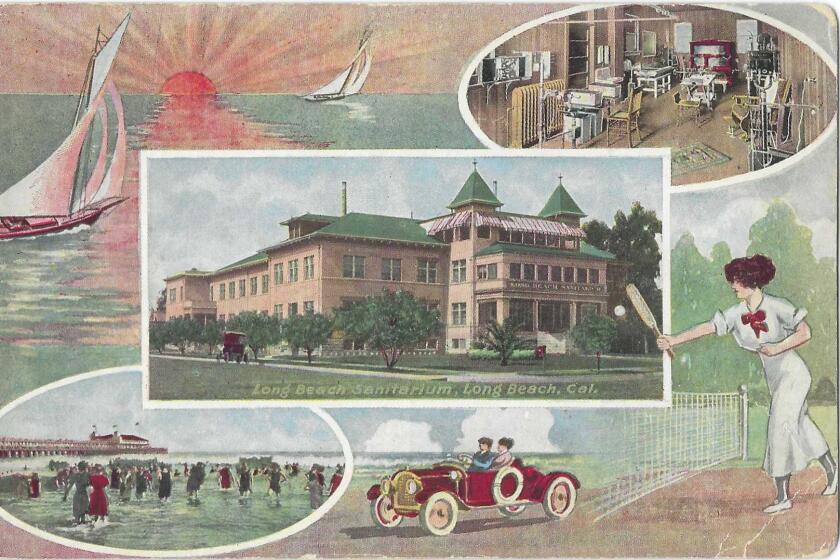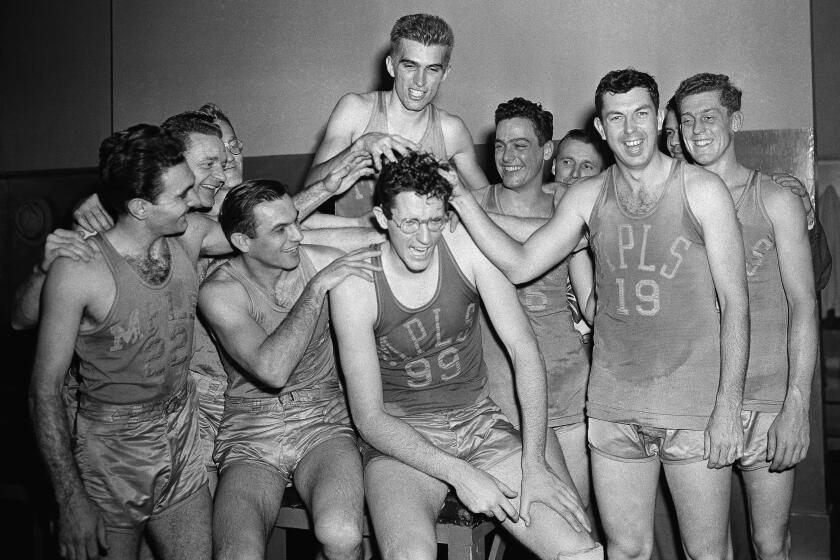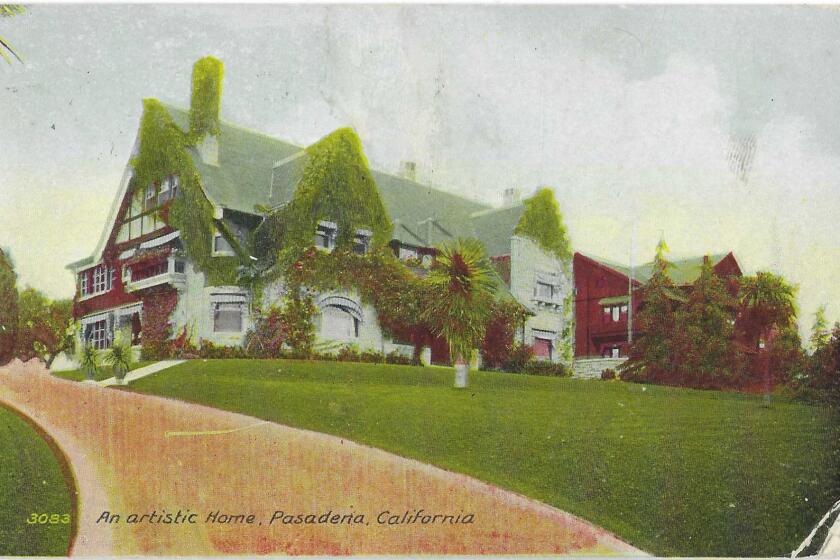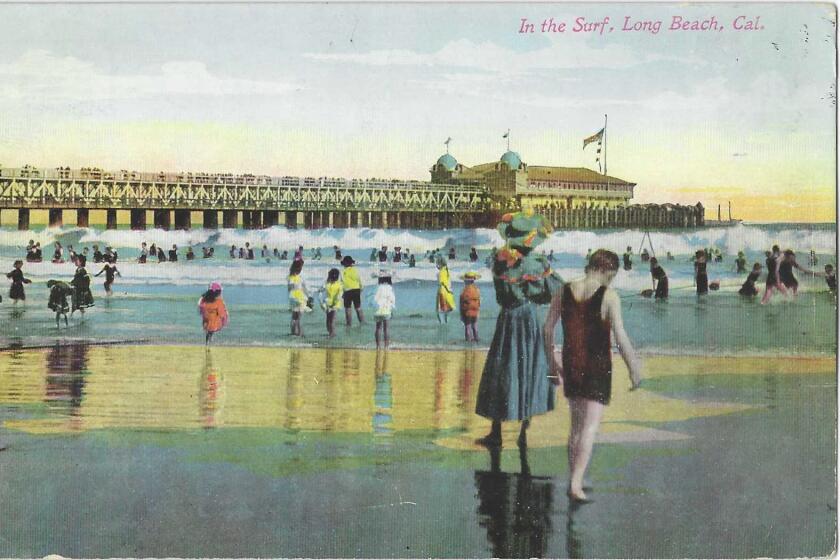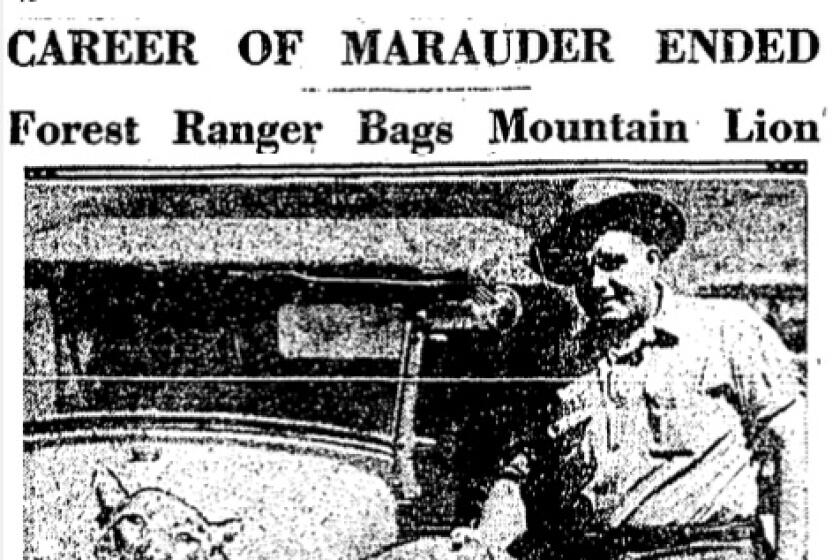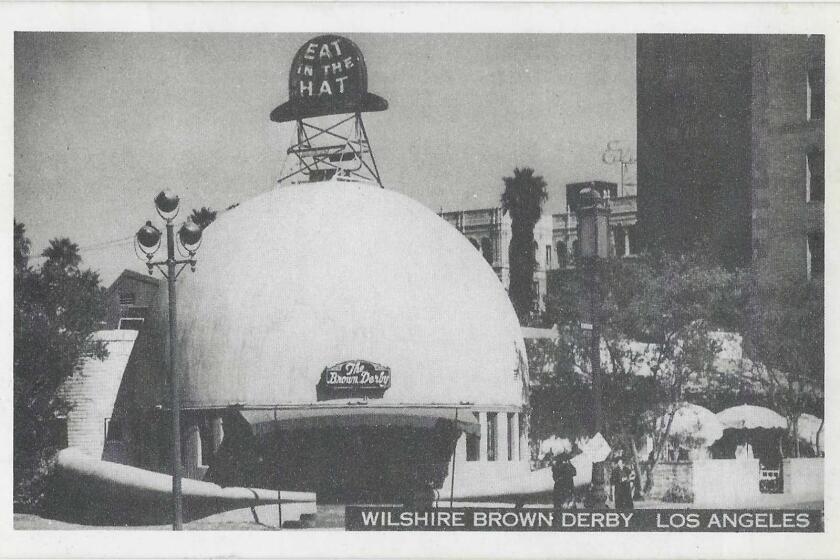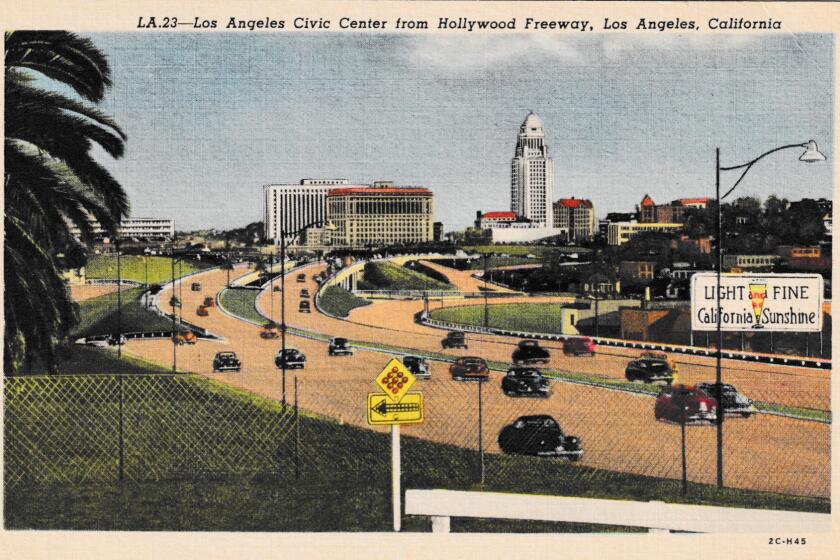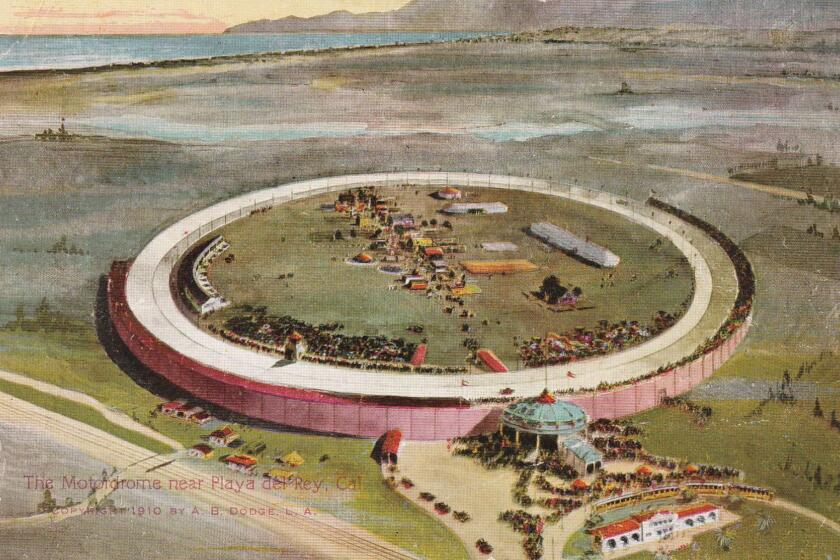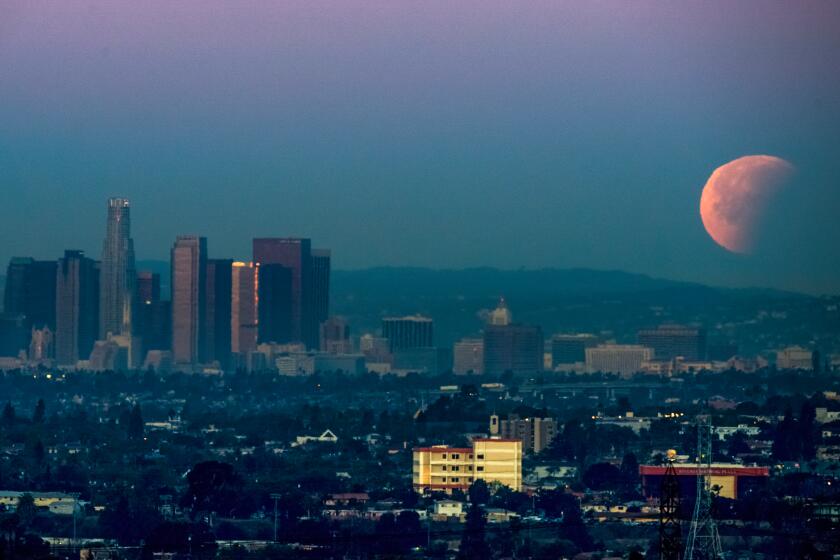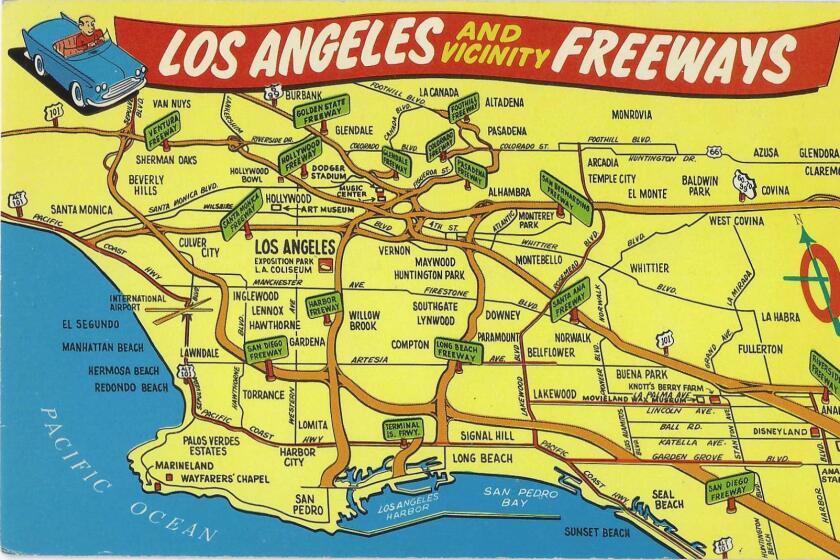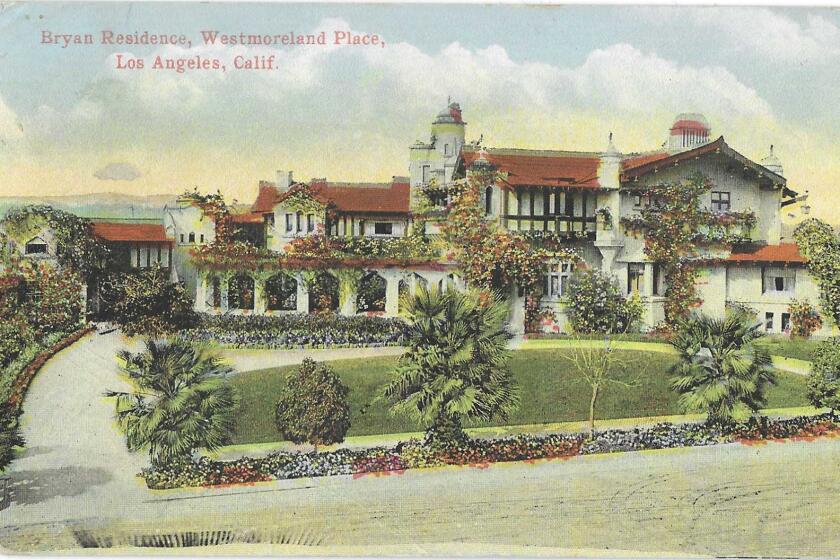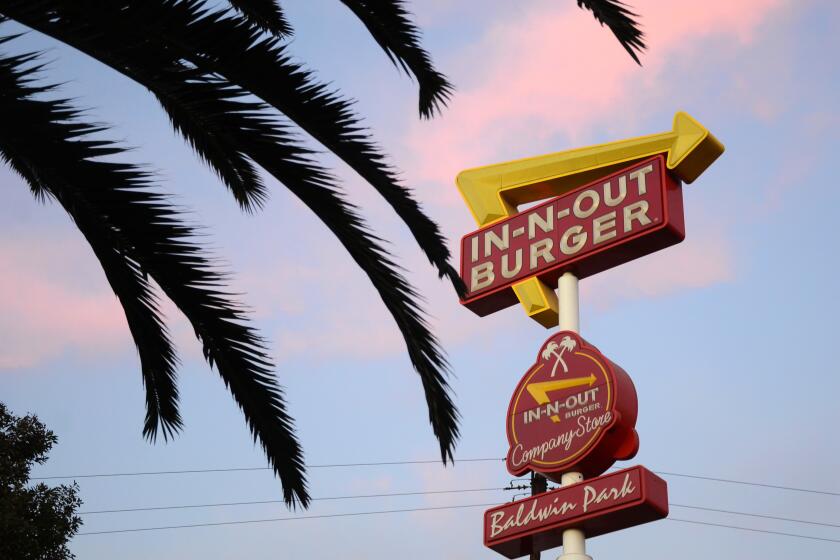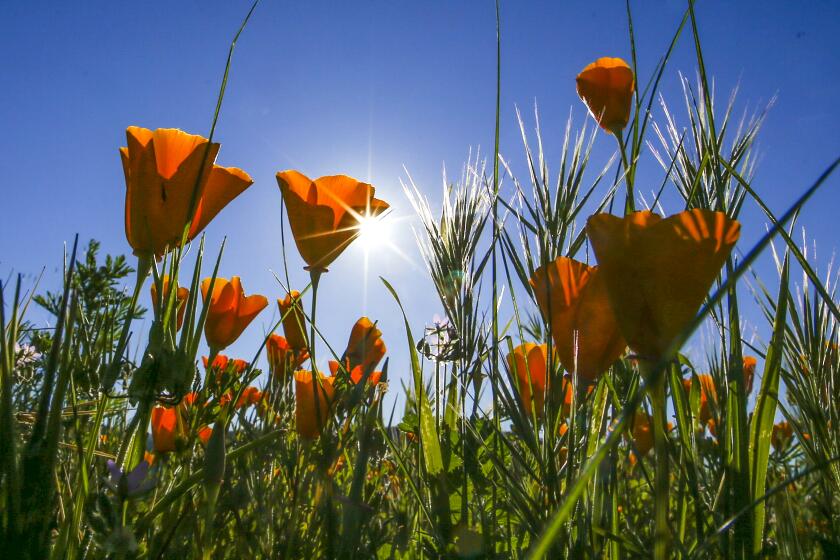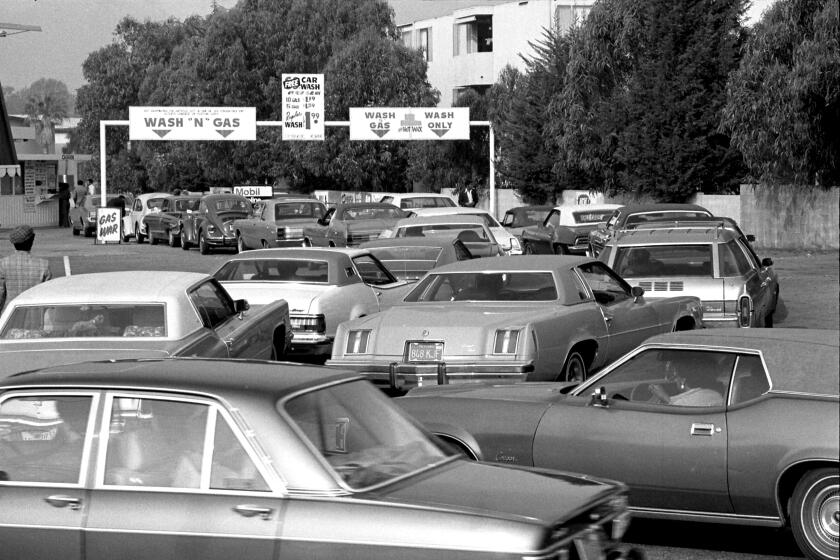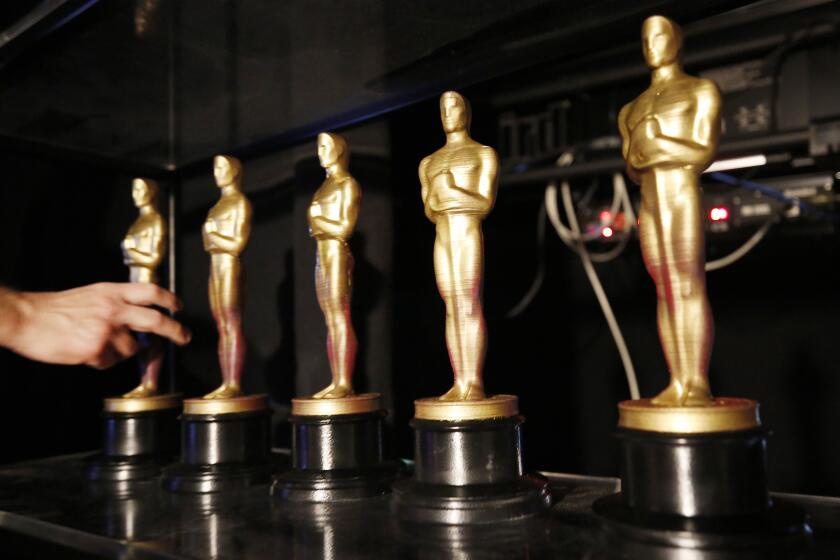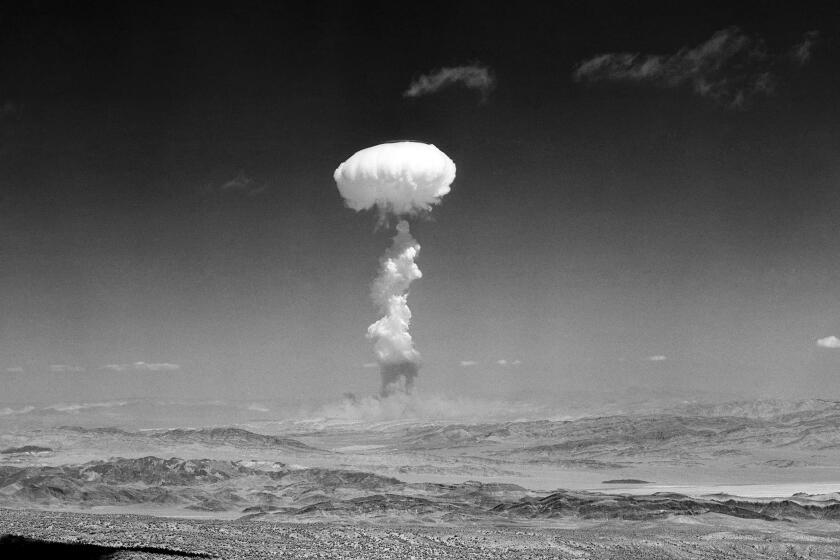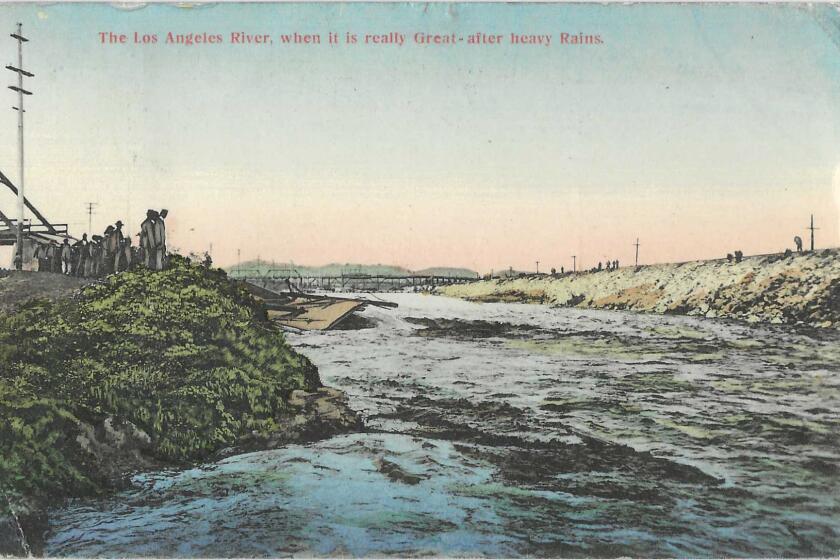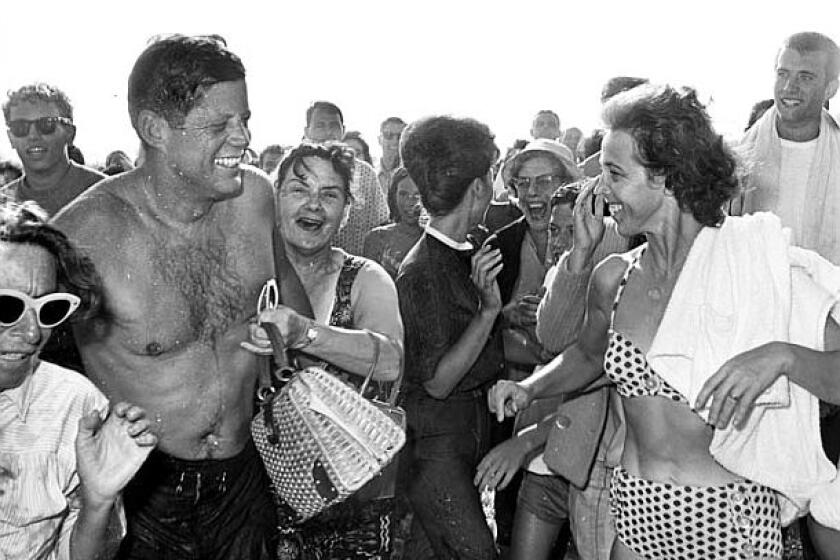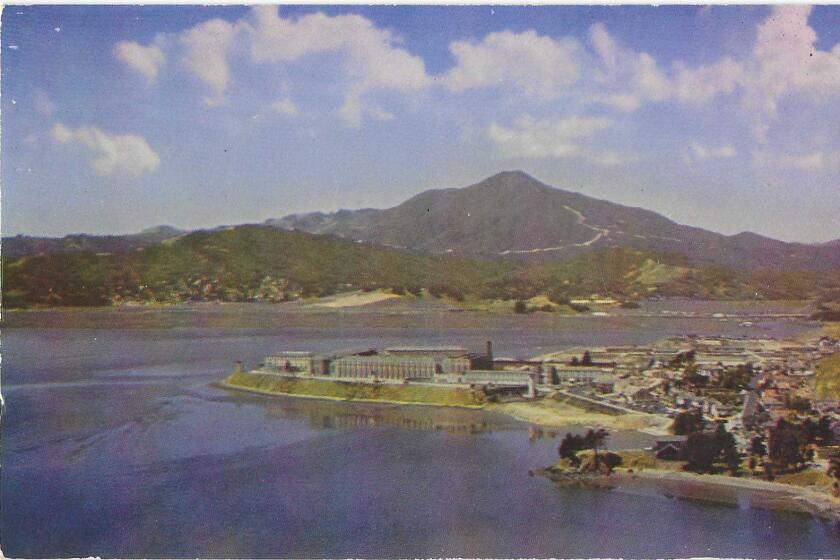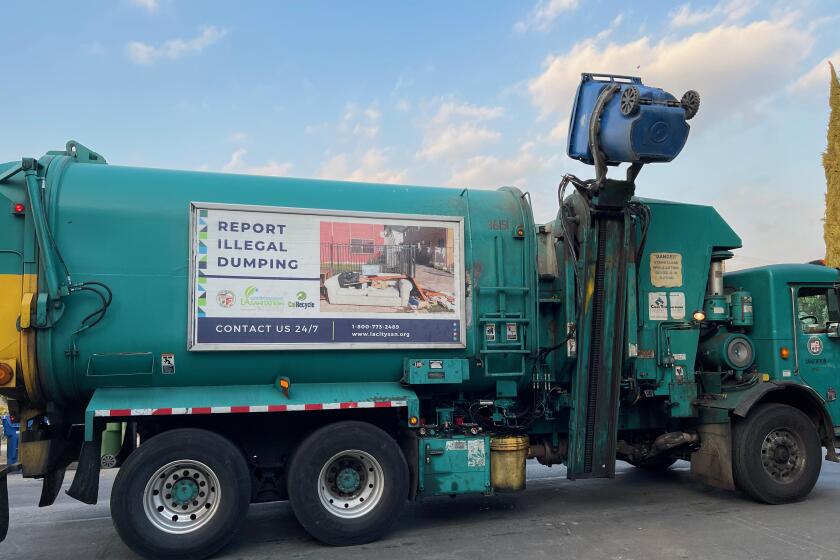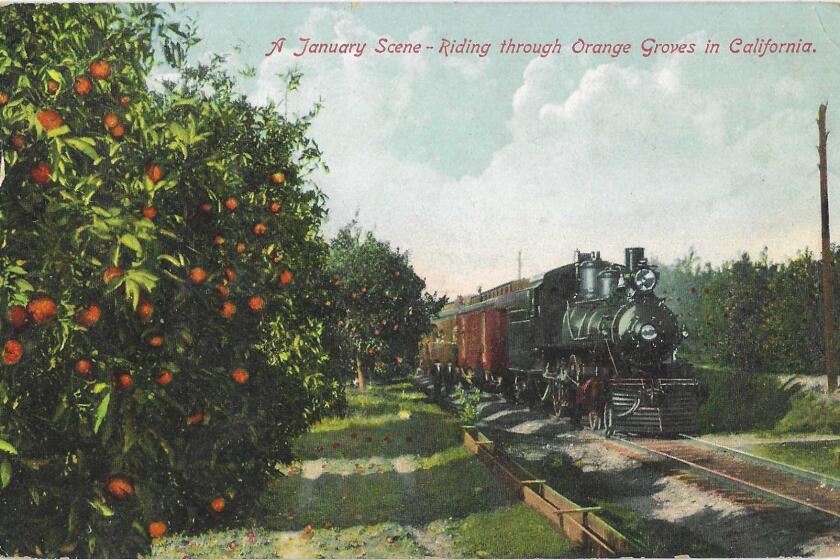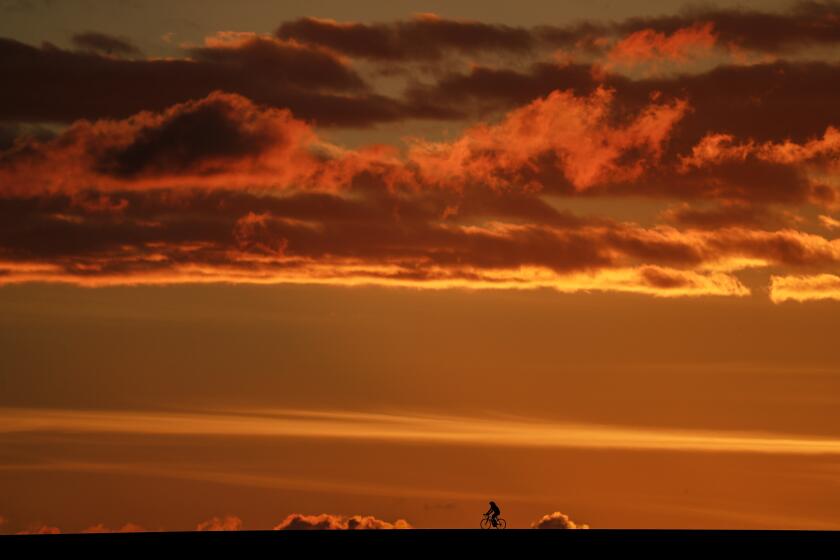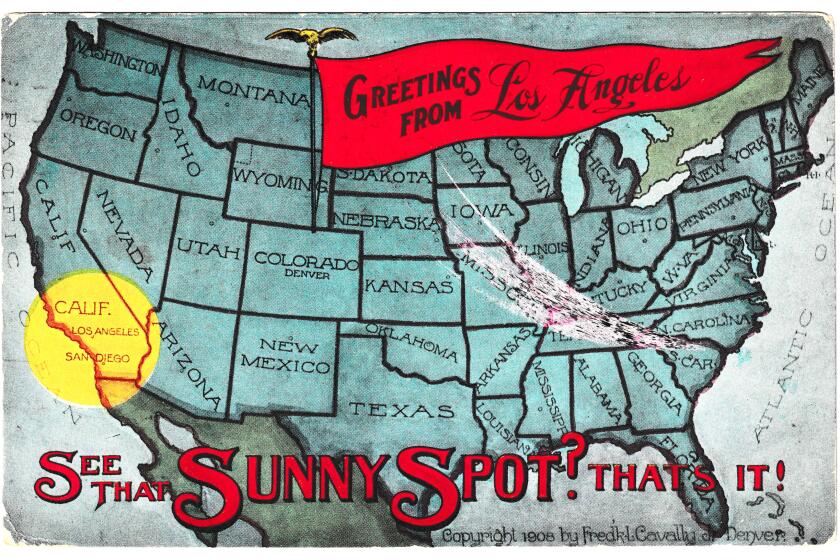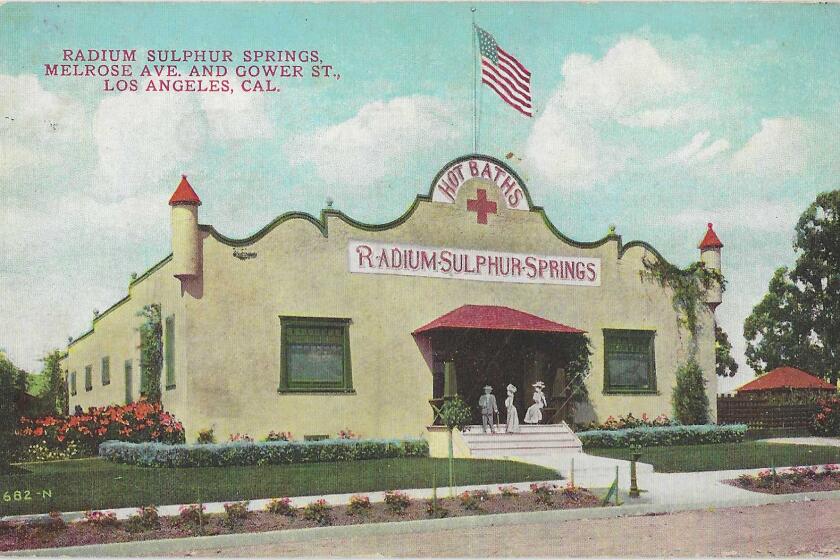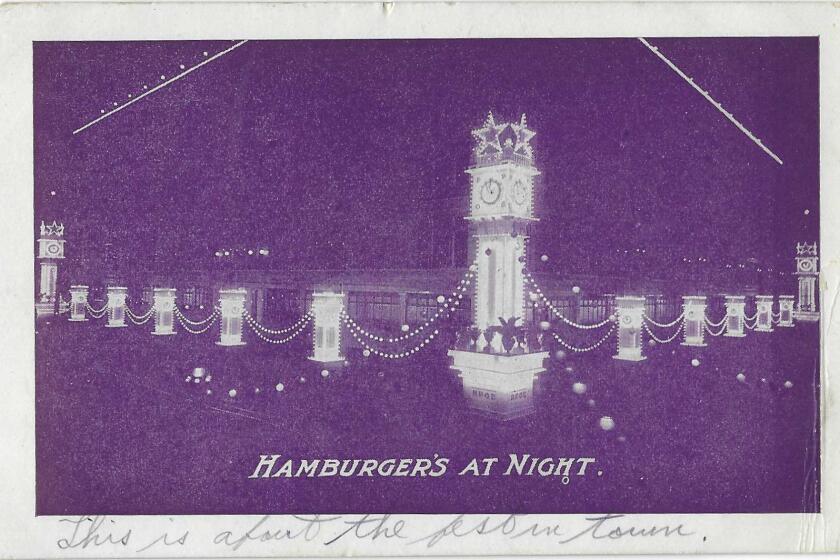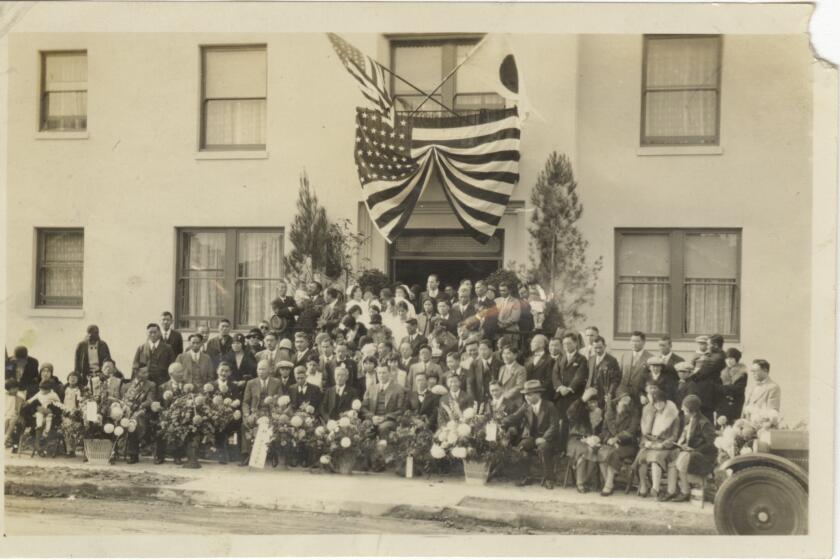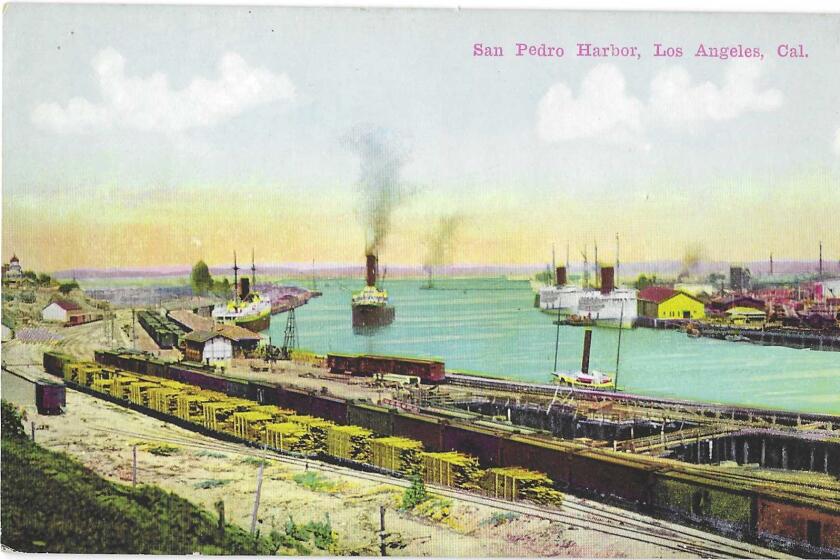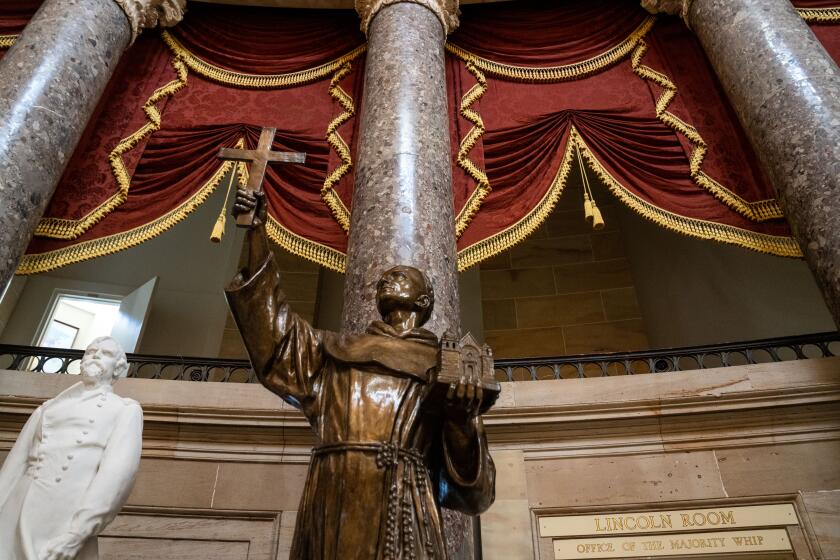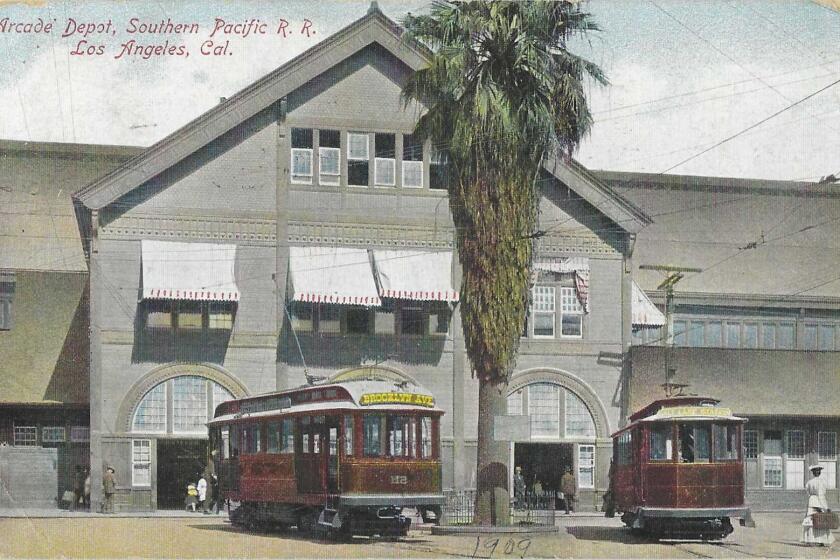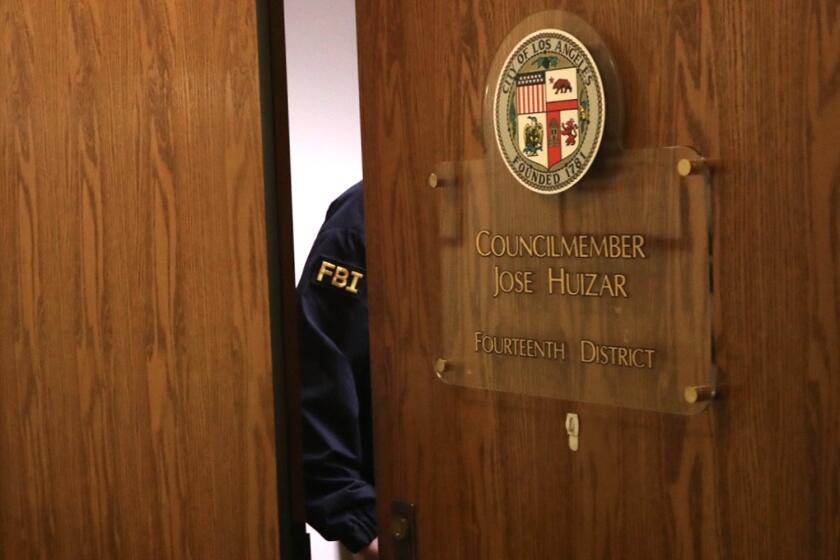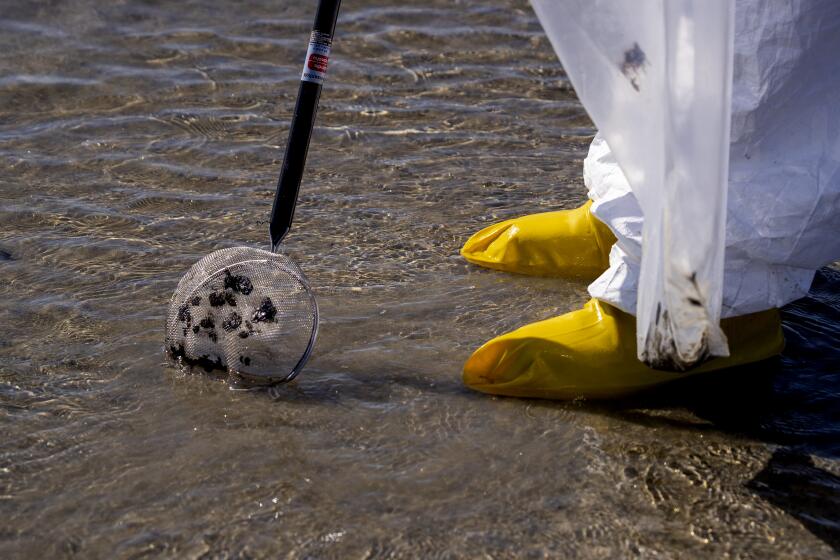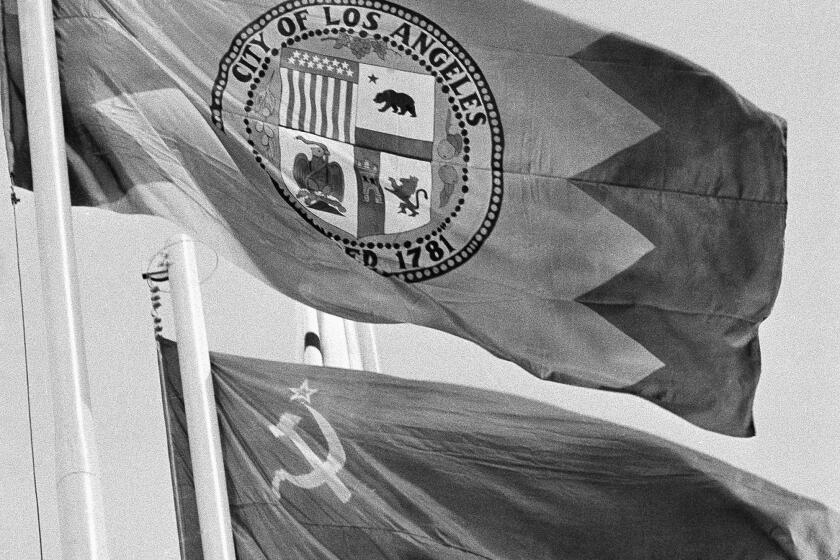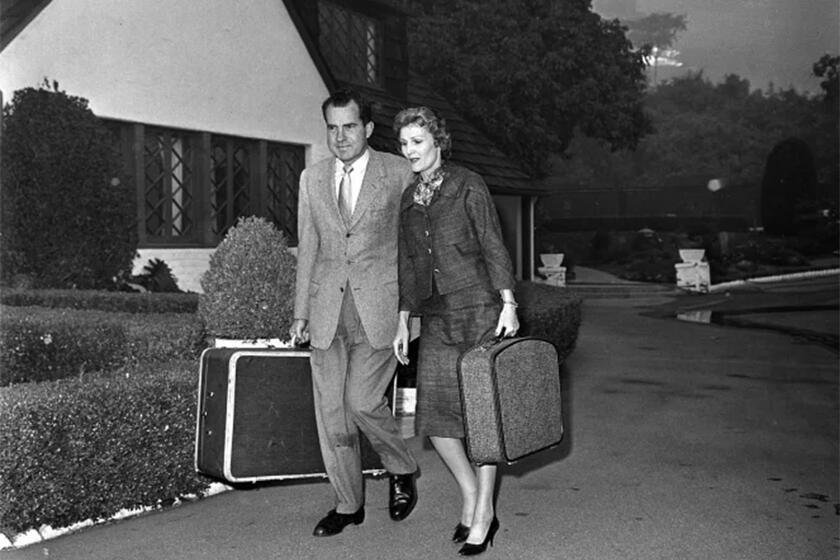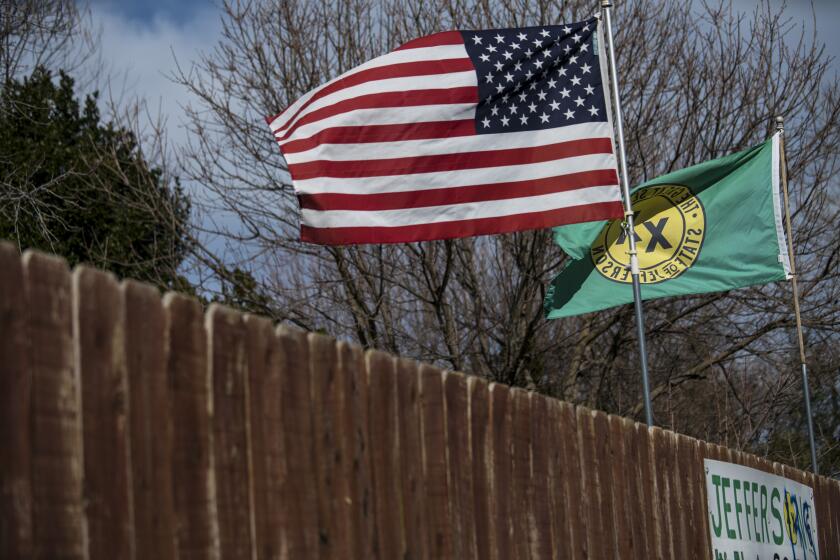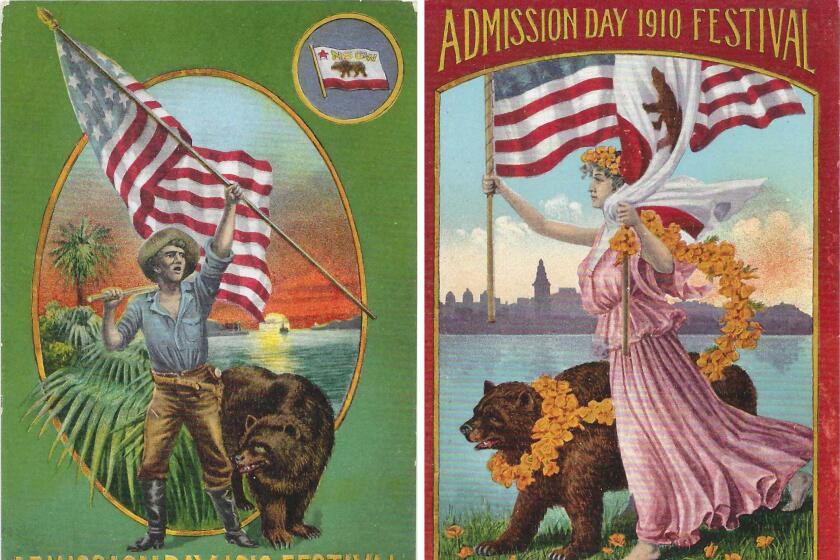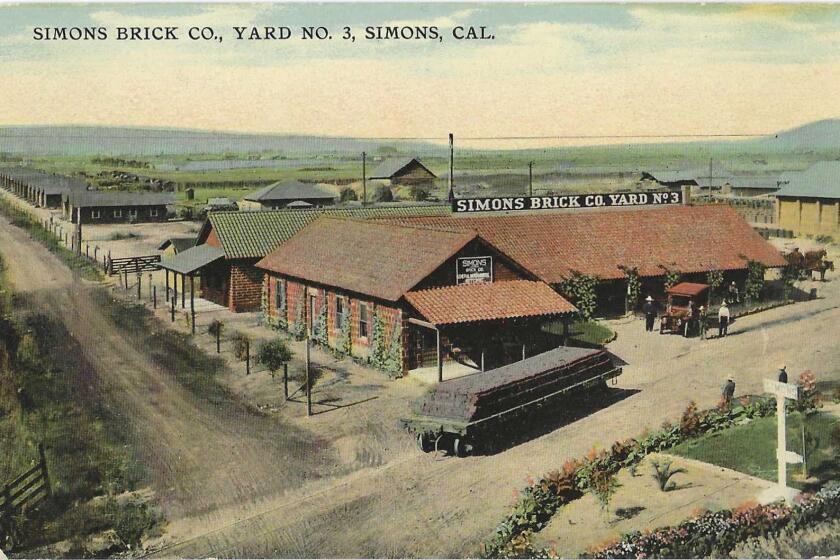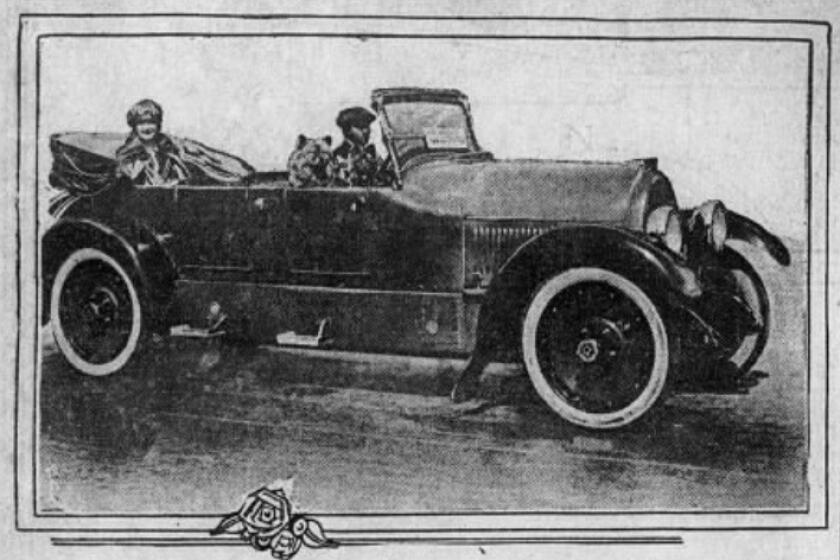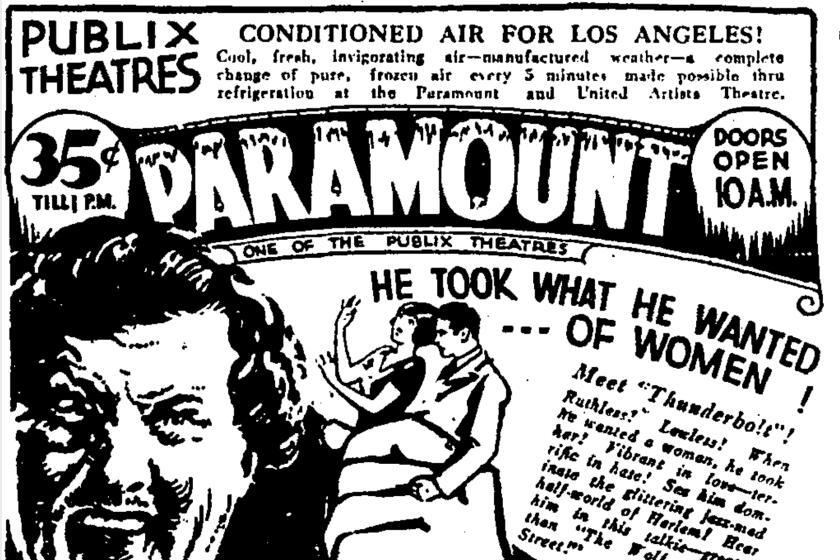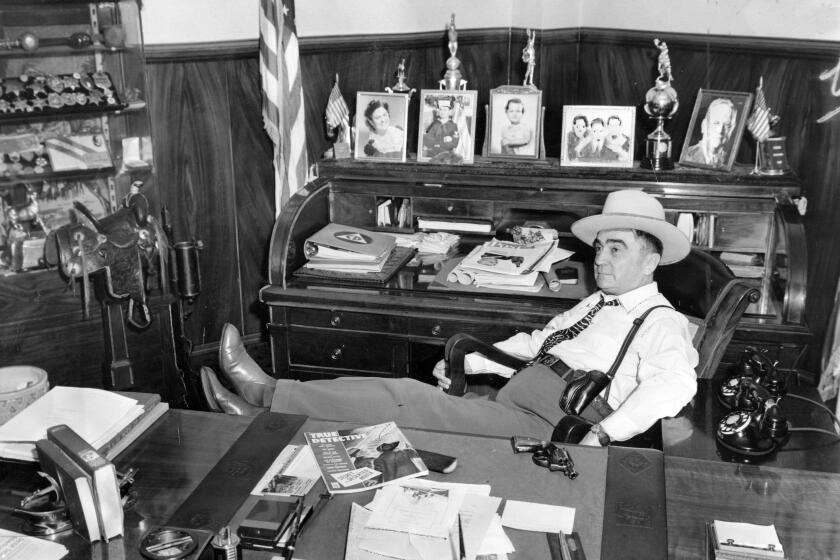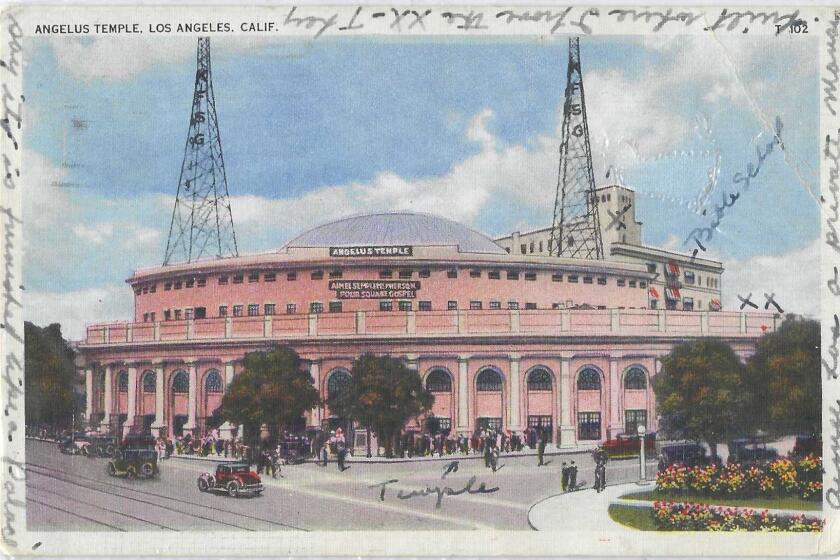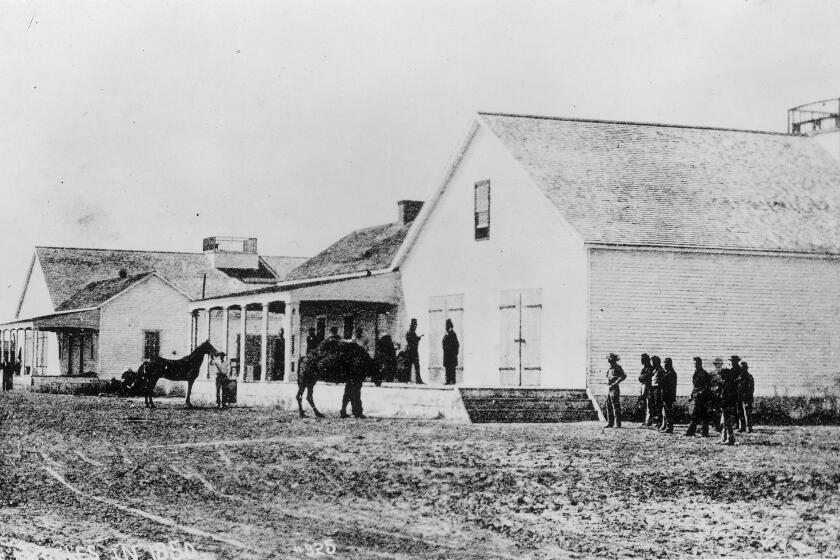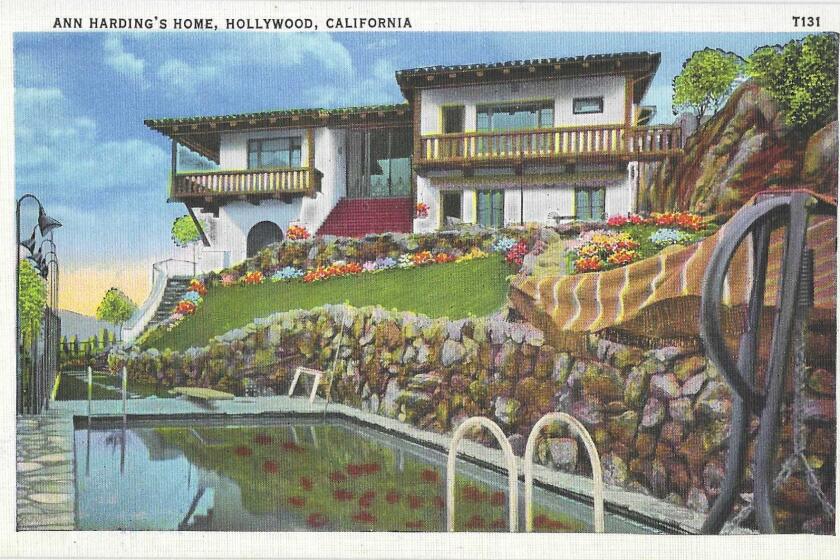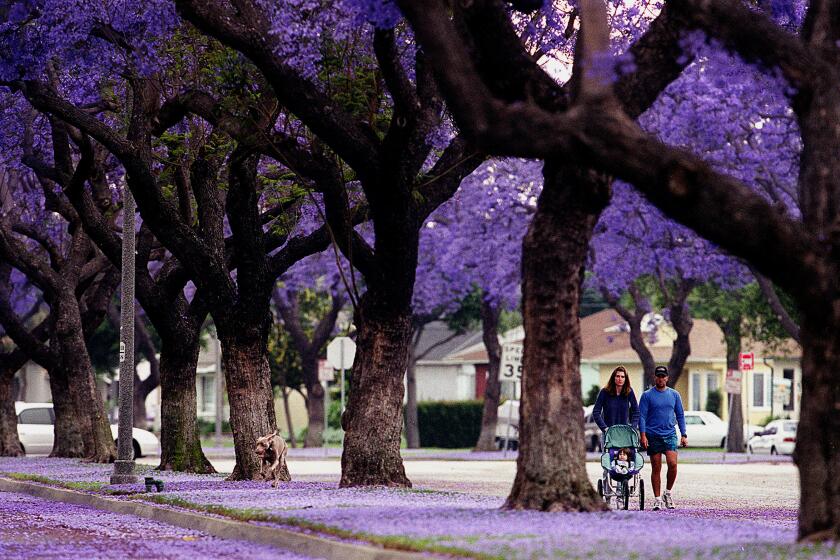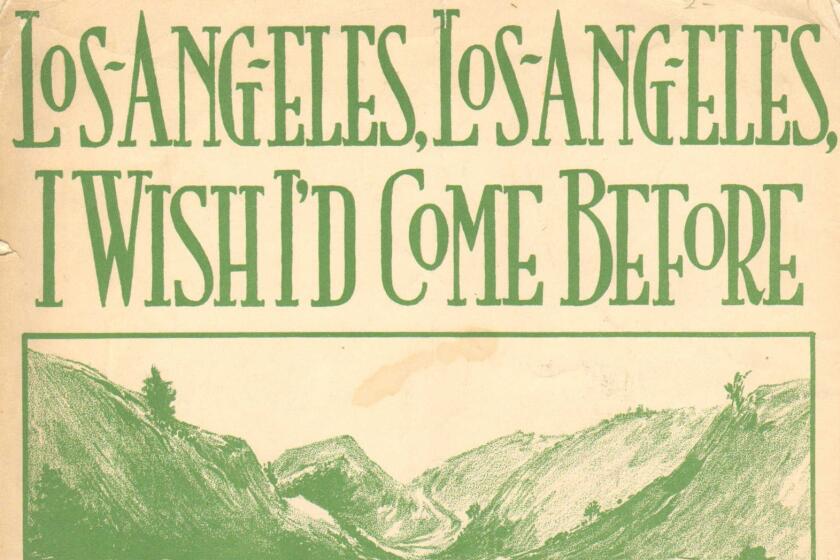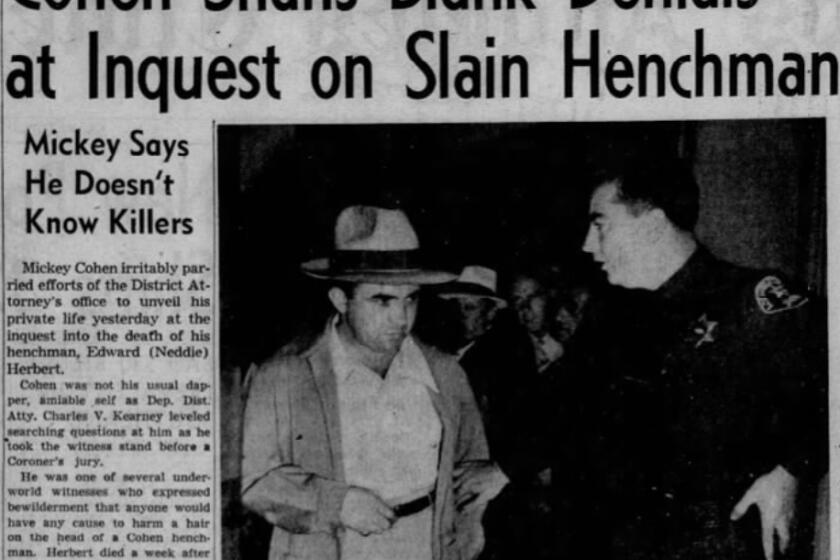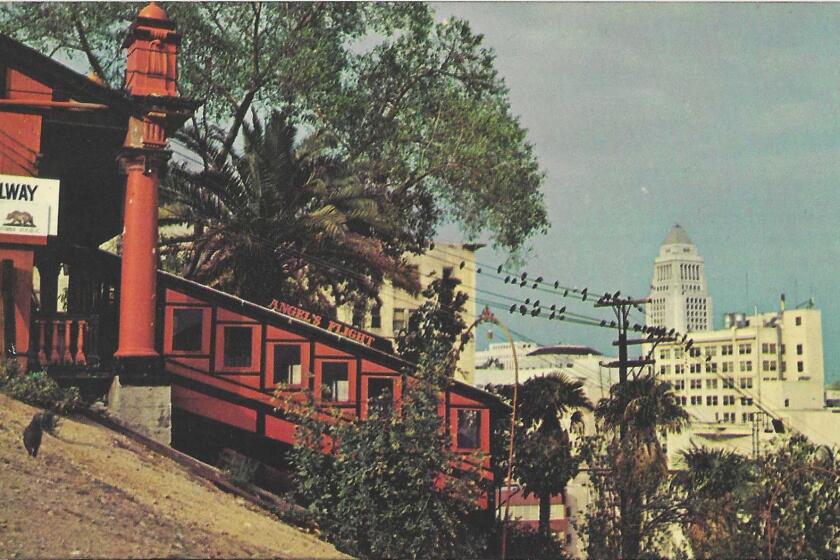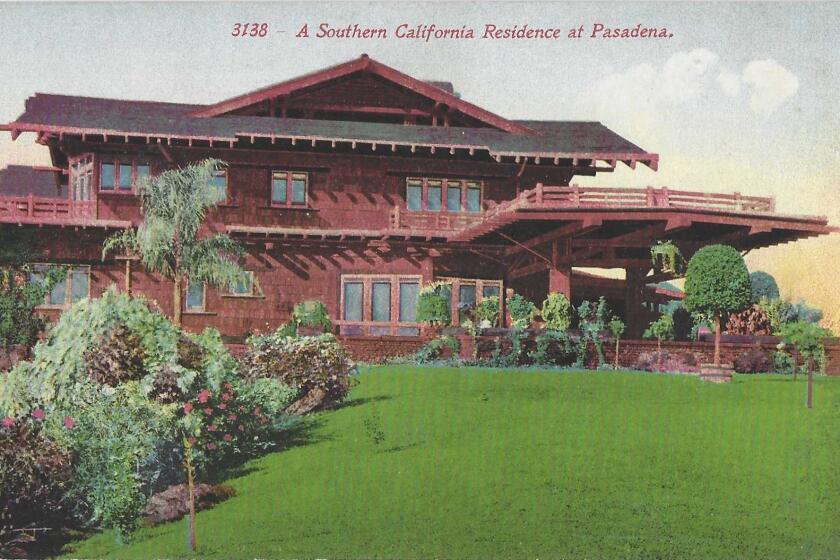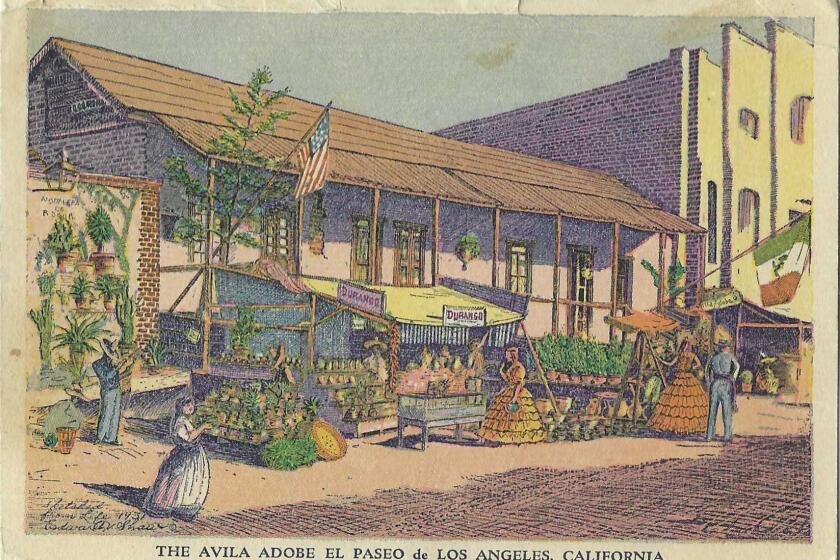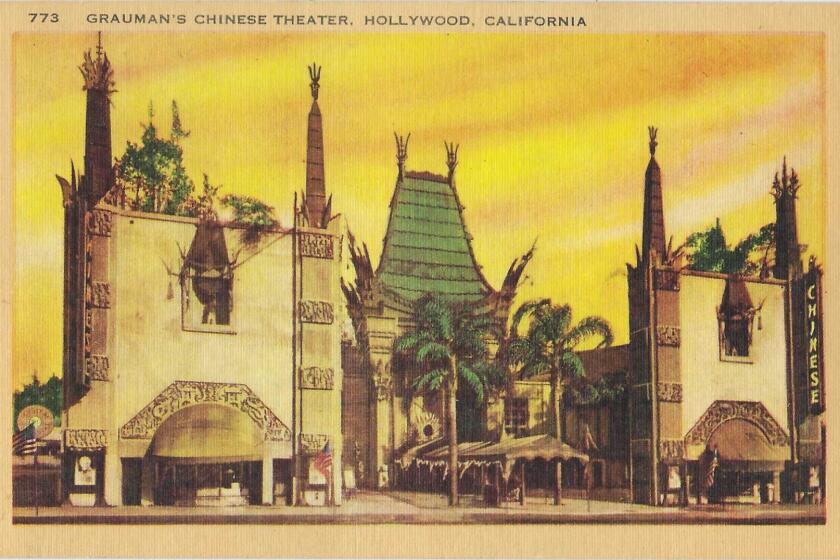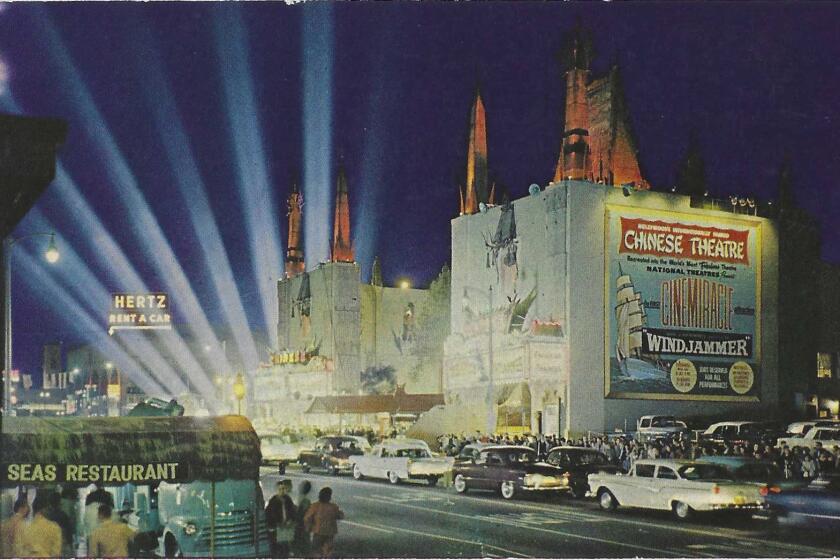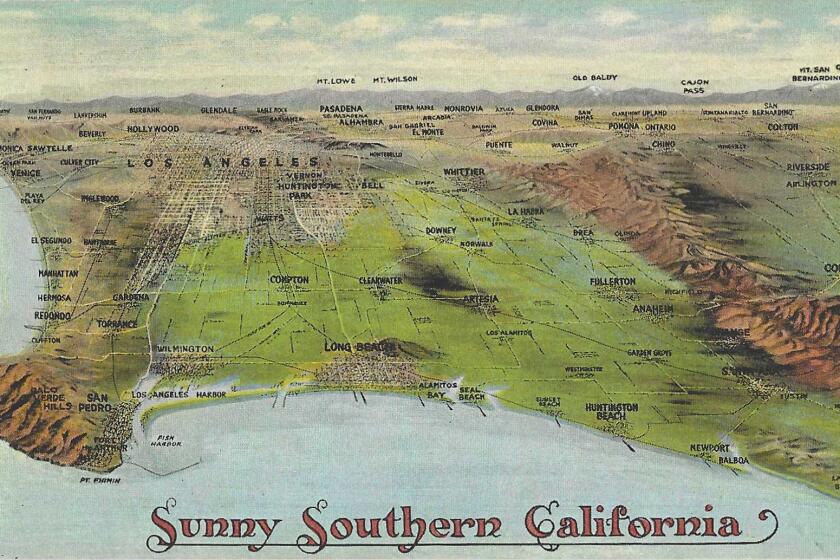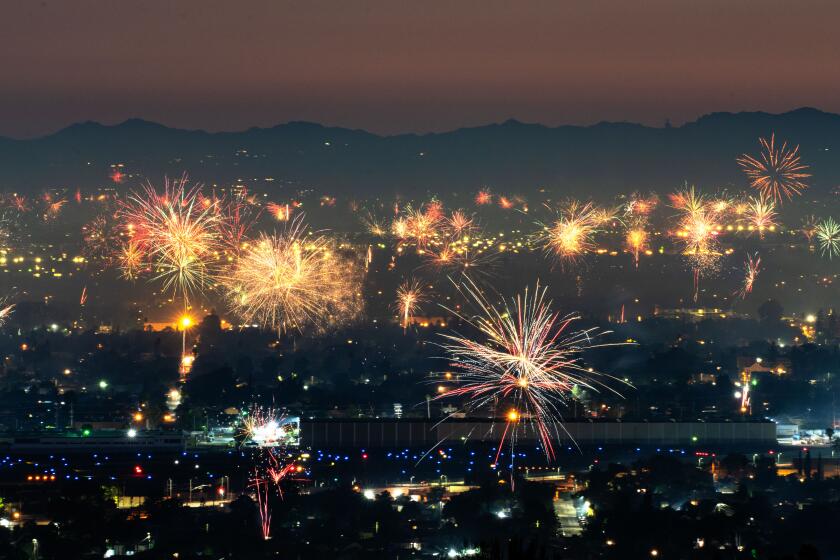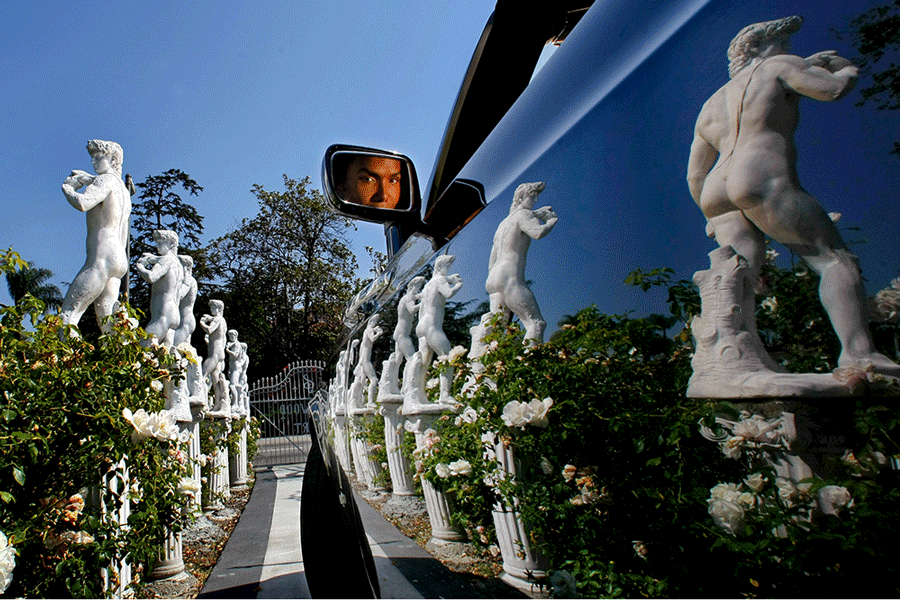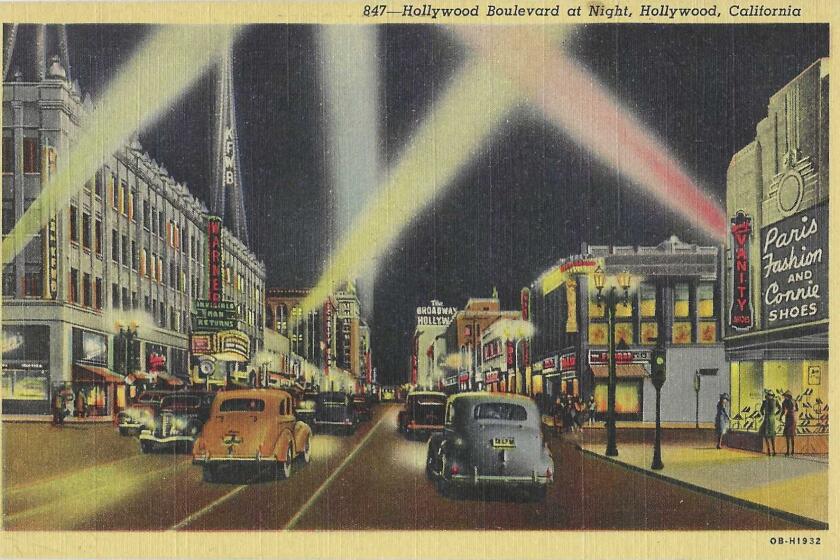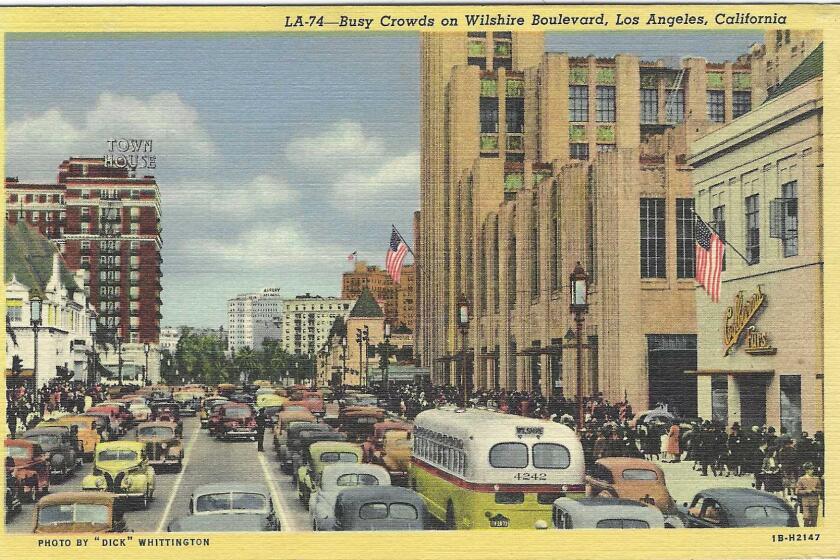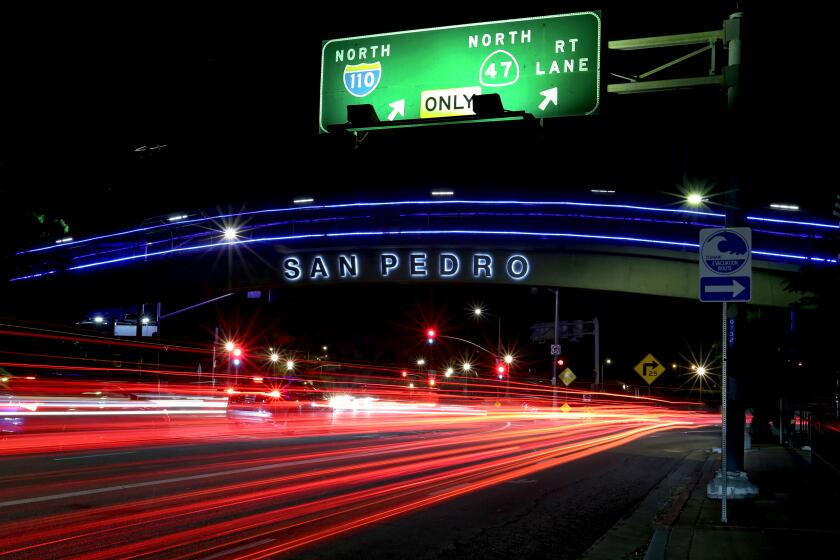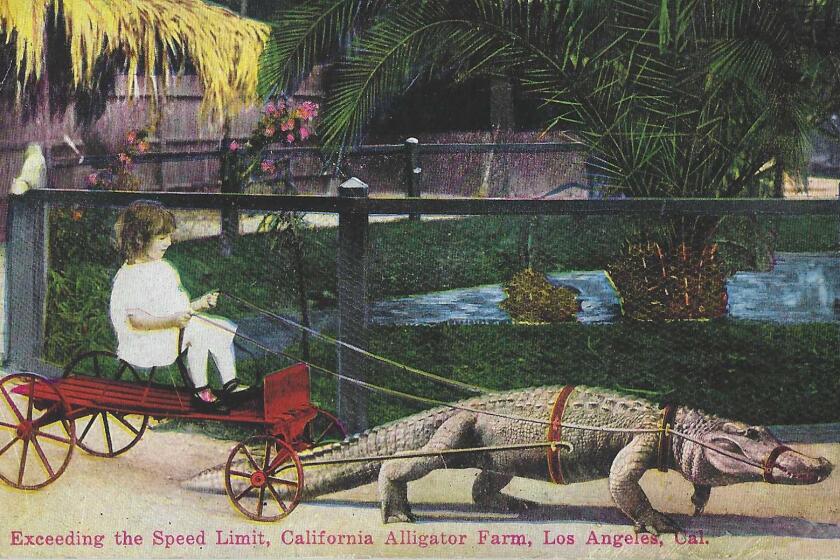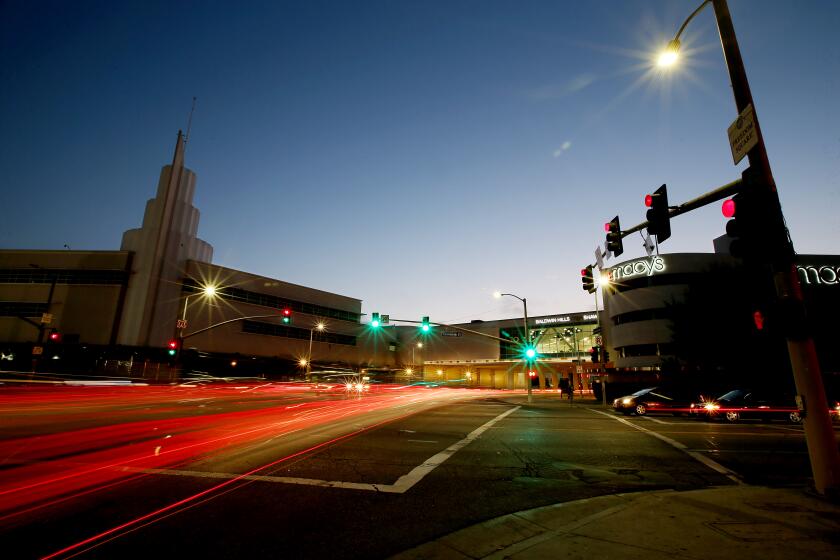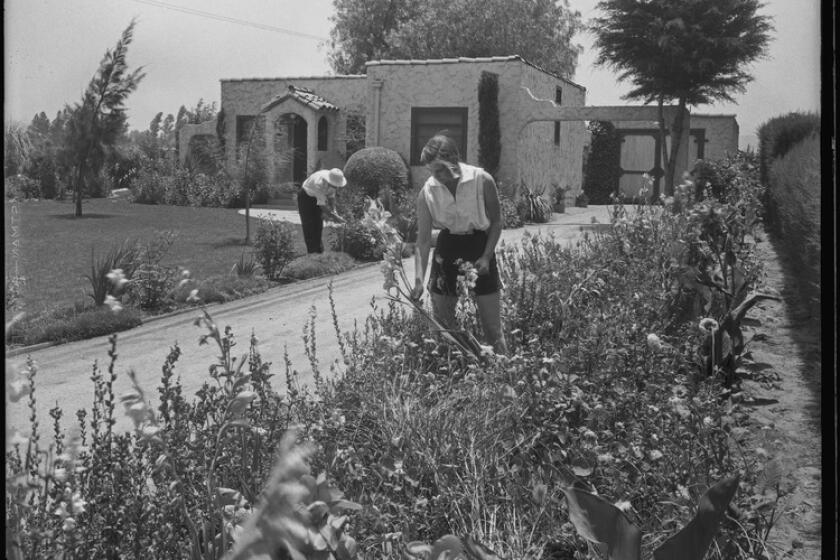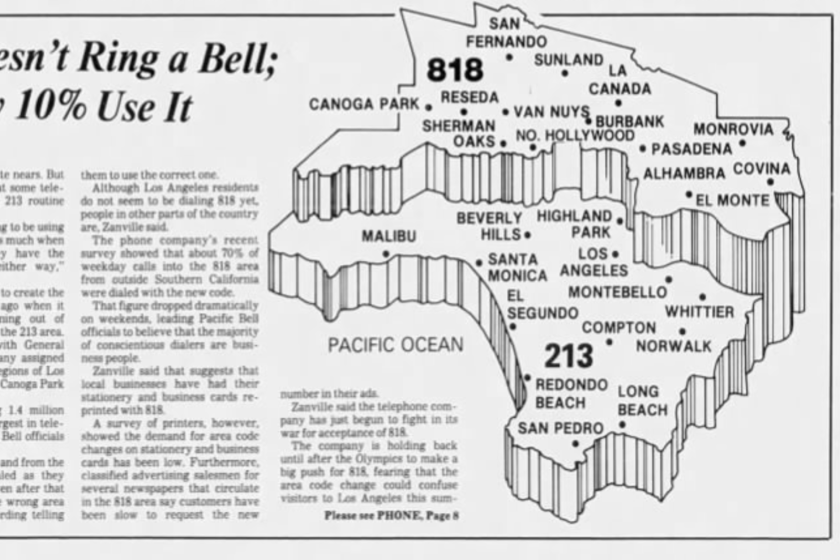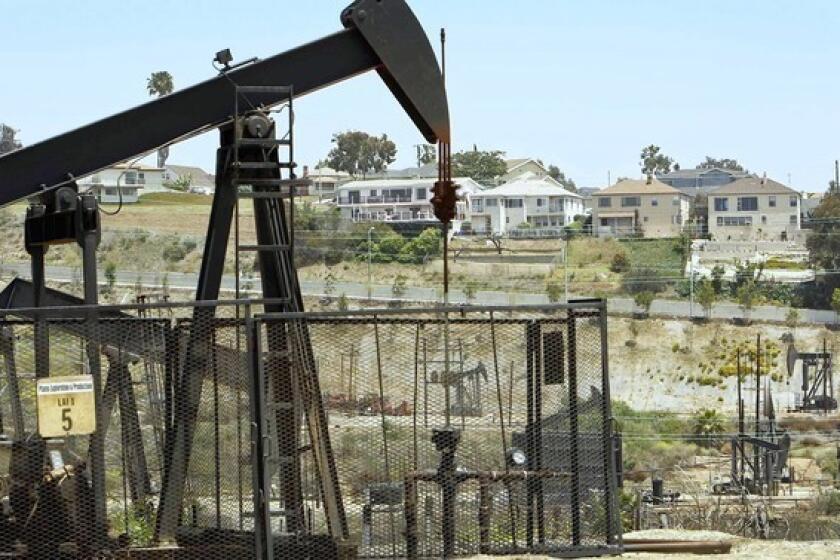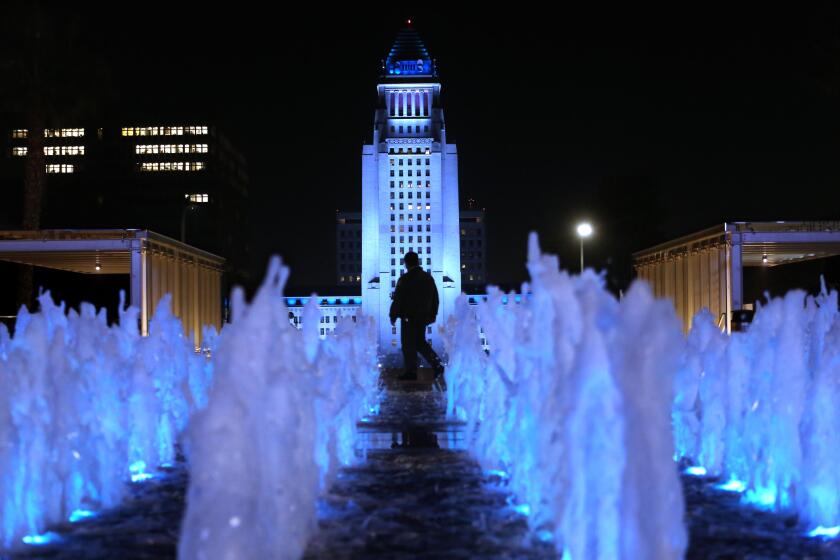Explaining L.A. with Patt Morrison
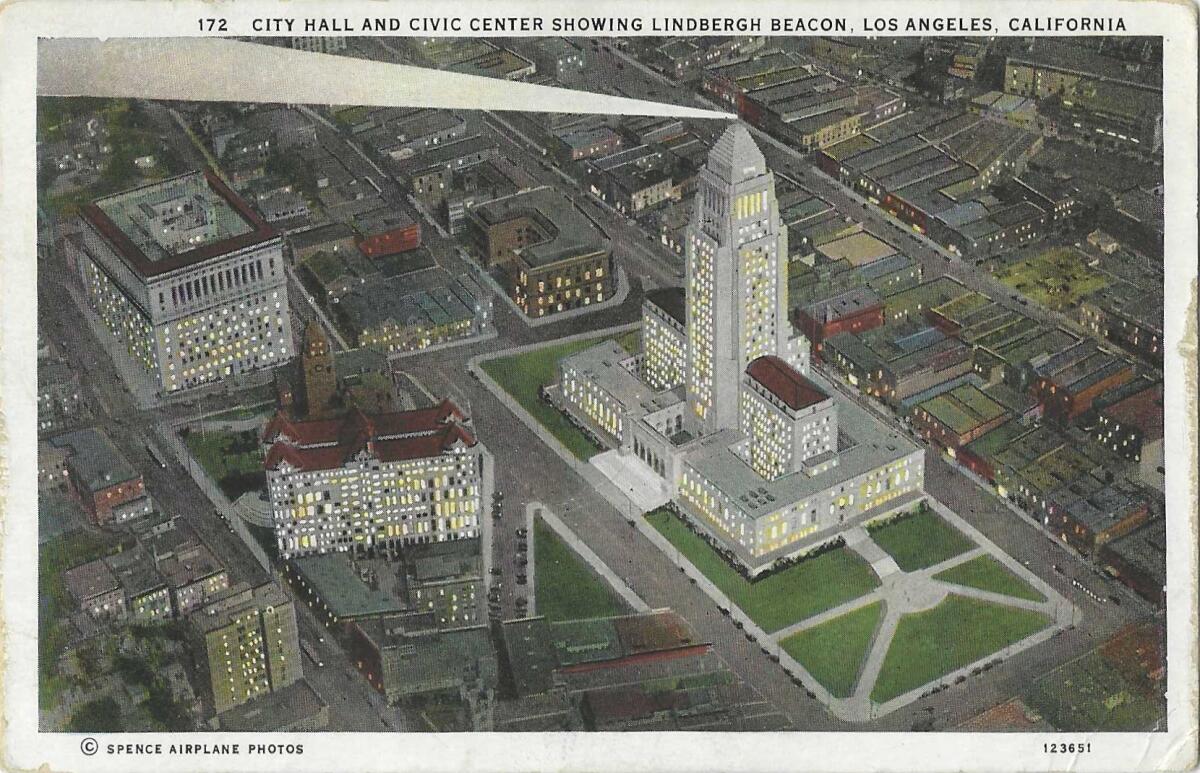
Los Angeles is a complex place. Patt Morrison is explaining how it works, its history and its culture.
- 1
When a Medfly quarantine in L.A. ended this summer, you could be forgiven for asking, “A what quarantine?” This is the tale of California’s long fight against an agricultural pest.
- 2
In Southern California, a long time has passed since our famed citrus crop dominated the landscape. The orange groves have instead gone to housing developments, nearly every one.
- 3
Your driving-directions app that bosses you around like a back-seat driver is squeezing the life out of Loyd Sigmon’s name and his namesake baby: the SigAlert.
- 4
KTLA, KFWB, KTTV, KNX — you know the call letters of local radio and TV stations and probably have a jingle or two stuck in your head. But where did this broadcasting alphabet soup originate?
- 5
When Olympians and journalists dine on the bounty of France in the coming weeks, some of what’s on their plates will have been grown, gardened and harvested from Parisian garages, road medians and rooftops.
- 6
Sure, you can take a bus tour to see the walls and foliage outside celebrity homes. But there’s much more to learn about Los Angeles’ famous real estate.
- 7
Piers around Southern California have a nasty habit of catching fire or otherwise surrendering to the sea. But they endure on our coast, in our civic life and in our imaginations. Why?
- 8
California, ever the pioneer, was the first state to legalize no-fault divorce in 1969. Other states followed suit — New York, the last, in 2010, about two whole generations later.
- 9
A complex mixture of human and geological factors means that this stunningly beautiful peninsula of seaside Southern California homes is also, at times, perilous.
- 10
This week marks the anniversary of Robert E. Lee’s surrender near the end of the Civil War. Southern California, part of a free state from its beginning, held profound Confederate sentiment in the 1860s and beyond.
- 11
Los Angeles graffiti — in the form of a tagged-up, unfinished skyscraper downtown — has recently made national news. But we’re also the mural capital of the world and constantly asking ourselves: Is this art or vandalism?
- 12
Cemeteries -- grand and all-but-forgotten -- dot our landscape. Here are their stories -- and the stories of Angelenos who found their final rest there.
- 13
She toured the world wowing audiences, and she captured the public’s imagination for decades. No, not Taylor Swift; Ellen Beach Yaw, also known as Lark Ellen.
- 14
The Westside Pavilion is being remade as a UCLA biomedical research facility, an Orange County mall will become housing, and Gen Z seems to actually like shopping at malls.
- 15
Antisemitism is as old as time. In Los Angeles, prejudice against Jewish people took on new and more public forms in the 1920s and 1930s and beyond.
- 16
Our answer to New York City’s goofy ball drop is in giant letters for all to see: Let’s light up the Hollywood sign one night a year, New Year’s Eve.
- 17
Southern California’s Thanksgiving celebrations have evolved over the years, from a mostly religious occasion to the more secular parades, football and celebrities.
- 18
In bookstores’ L.A. heyday, shops were as ubiquitous as a certain coffee chain is today. But we’re no slouches today, even if the internet removed many stores’ physical presences.
- 19
The big pageants like Miss America are nowhere near the cultural touchstones they once were. And the smaller ones — anybody remember an L.A. auto dealership’s Miss New Car Department? — have all but disappeared. What happened?
- 20
Los Angeles’ first documented smog attack — yes, we had smog attacks — was in 1943. We’ve been fighting the sources of pollution and the quirks of geography that trap it ever since.
- 21
The word ‘California’ was first put to printed page in the 1500s — long before the U.S. state existed, of course. Since then, it’s become the place for dreamers, doers, brainiacs and billionaires.
- 22
Cal Worthington (and his ‘dog’ Spot), ‘Madman’ Muntz and other colorful local pitchmen used to claim space in the public consciousness. Our culture may no longer be built for that brand of commercial antics.
- 23
‘Colonies’ started coming to California not long after statehood. They were associations of affinity, of shared interests — neighbors or fellow churchgoers or the intellectually or artistically or industrially homogeneous.
- 24
Take L.A. oilman C.C. Julian, who oversold oil stock and left people destitute and dead. Or Simon Homburg, who flipped sheer mountain lots to unwitting out-of-towners.
- 25
The beauty of train trips used to be a key selling point. But with the Pacific Surfliner suffering the effects of climate change, safety and reliability may trump the pretty view.
- 26
We still have lots of airfields, but gone from the landscape are the runways — near Griffith Park, near Wilshire and Western, in the Palisades — that could have challenged LAX for air superiority.
- 27
Did you know the LAPD bombed an anti-corruption investigator in the 1930s? Well, they did. And it was one of many outrages that led to civic reforms in Los Angeles.
- 28
Upton Sinclair, the author of ‘The Jungle,’ ran up against L.A.’s anti-labor authorities 100 years ago this month -- in a cinematic series of arrests in San Pedro that led to the founding of the ACLU of Southern California.
- 29
The freeways, the smog, the people, the culture, the intellect — nothing and no one is spared when it comes to people from New York and elsewhere insulting Los Angeles.
- 30
An L.A. Times exposé — and in one instance, Gloria Allred quite literally exposing sex discrimination — led the Jonathan Club, the California Club, the Friars Club and others to become less exclusive, if not less expensive.
- 31
The Cubs held spring training on Catalina Island. A team called the Tigers played in Vernon, then Venice, then Vernon again. And L.A.’s Wrigley Field held night games decades before Chicago’s did.
- 32
Bob Hope, along with Daffy Duck and Marlene Dietrich, helped popularize the catchphrase ‘Now you’re cooking with gas.’ Many decades later, we’re paying out the nose for the privilege.
- 33
The motion picture academy’s annual Oscars ceremony worked its way though venue after venue before settling on its current Hollywood home in 2002.
- 34
California’s approach to seismic safety, particularly in schools, ramped up significantly after the deadly March 10, 1933, earthquake in Long Beach.
- 35
You think this year’s rains were bad? The floods of 1938 were so epic they led to a massive re-engineering of the L.A. River that vastly reduced the ability to recharge groundwater.
- 36
The year 2023 marks the centennial of many iconic L.A. landmarks, including the Hollywood sign, Memorial Coliseum, Biltmore Hotel and the Angelus Temple.
- 37
A look through criminal and gruesome appearances at Southern California lovers’ lanes may make you reconsider visiting one with your Valentine.
- 38
In the earliest days of moviemaking, Annie Oakley’s sharpshooting was committed to film. And Hollywood has had a difficult relationship with guns ever since.
- 39
L.A. County’s recent report showed hate crimes at their highest level since 2002. Patt Morrison looks further back into California history, to when we didn’t even count the hateful atrocities.
- 40
A mere six years after the Wright brothers’ famous first flight, Los Angeles hosted the United States’ first significant air show. In addition to being a spectacle, it solidified Southern California’s place as an aerospace hub.
- 41
L.A. is a place like no other. You’ve got questions. Patt Morrison probably has answers and can definitely find out.
- 42
Who is Griffith Park named for? What about Vasquez Rocks? The Broad? Mt. Baldy? Here are the namesakes of L.A.’s best-known landmarks.
- 43
Mt. Baldy is named for a saint, but there is no “Saint Baldy.” Mt. Lee, not Mt. Hollywood, is home to the Hollywood sign. Go figure. These are the stories of Southland mountain names.
- 44
Will Rogers, Leo Carrillo and Dan Blocker were actors. Nicholas beach is named for a robber. Point Dume’s namesake is a priest. And other stories behind L.A. beach names.
- 45
Sherman Way isn’t named for a Civil War general. Tarzana Street is named for, you guessed it, Tarzan. Read on for more San Fernando Valley street namesakes.
- 46
Generals and outlaws, heroes and villains: L.A.’s parks are named for a colorful cast of characters.
- 47
It’s just about Lummis Day. But who, or what, is a Lummis? Well, both — Lummis was a person and is the name of a house. In L.A., you may not know the names behind many landmark buildings. So here are a few important ones.
- 48
The 2023 Rose Parade is on Jan. 2 because of the never-on-Sunday rule. Over its 130-some runnings, the parade has survived its share of controversies — and rainstorms.
- 49
Karen Bass declared an emergency on her first day as Los Angeles mayor. In that declaration, she joins many mayors past, including Richard Riordan, Tom Bradley and Fletcher Bowron.
- 50
Old Christmas postcards reflect Southern California’s long campaign to portray itself as a paradise — the opposite of cold, wintry parts of the U.S.
- 51
We know about the chaos of Prohibition — gangsters and corruption galore. But the movement that brought it about is less well known.
- 52
Since the first Jews were counted in L.A.’s census of 1850, Jewish contributions to the city’s institutions and development have been numerous.
- 53
Los Angeles used to hold the Fiesta de las Flores in the springtime, but the parade couldn’t stay fresh long enough to outlast Pasadena’s Rose Parade.
- 54
It’s yet to be determined if Karen Bass will break the long string of men who have held L.A.’s highest elected office. Here are the stories of other women who have run for mayor or briefly served.
- 55
For about as long as L.A. has had roads, we’ve had cops chasing speeding cars. Now they are live TV spectacles, sometimes ending in broadcast tragedy.
- 56
Next time you raise a glass of California wine, remember the time when Los Angeles, not Northern California, was the state’s major wine region.
- 57
Women won the vote in California in a narrow election victory in October 1911. Here’s who fought for and against women’s suffrage.
- 58
In L.A., becoming an Angeleno is more about your orientation toward the city than your address or where you were born.
- 59
Some were subsumed into bigger cities; some fitfully married neighbors; one was washed into the sea. And some just went poof. These are the stories of L.A.’s phantom towns.
- 60
Our distinction as the Sanitarium Belt can still be seen in local hospitals and bans against public spitting.
- 61
Trolley dodgers without trolleys. Lakers without lakes. Why some team names outlive their rationale.
- 62
L.A.’s public beauty spots deserve a visit, by all means. But it’s the houses that surprise visitors and gratify us, even if they can only be glimpsed from a sidewalk.
- 63
Postcards promoting Southern California beachgoing are colorful affairs, except for the people depicted. Many beaches were off-limits to nonwhite people for decades.
- 64
The state was essentially at war with cougars until the 1960s, when the bounties ended. As the big cats’ numbers declined, they came to enjoy more and more protections.
- 65
In cases such as the French dip and the California roll, the L.A. inventor is disputed. Not so with the cheeseburger, which is SoCal from top bun to bottom.
- 66
Los Angeles bills itself as the home of endlessly clement weather. But Southern California’s mix of microclimates isn’t immune to dramatic storms.
- 67
Racetracks and races — official and street, horses or cars — have a long history in Los Angeles. Much of the evidence has been erased by development.
- 68
Their names are mysterious — Mazdaznan, Thelema and Synanon, to name a few — but their playbooks have been remarkably similar. Here’s a look at crackpot credos that flourished and foundered in L.A.
- 69
There is no Beverly Hills Freeway. Nor does the 2 connect to the 101. What even is the 90? These are the freeways that didn’t happen as planned.
- 70
The L.A. area has long been home to ostentatious houses. Pasadena had Millionaire’s Row over 100 years ago. These days Bel-Air has “The One” and the “Starship Enterprise.”
- 71
McDonald’s, In-N-Out, Carl’s Jr., Taco Bell, Del Taco, Der Wienerschnitzel ... you name the fast-food joint, it probably started here.
- 72
In spring, Los Angeles’ fancy turns to flowers native and non, and we relish the reprieve from heat waves and wildfires.
- 73
We don’t have shortages of gasoline that prevent you from filling up today. But in the 1970s, the high prices came with long waits and other inconveniences.
- 74
The most famous statue in the world is probably, maybe the Oscar. Many have been stolen, and several have been sold.
- 75
Nuclear fallout shelters were a popular conversation topic in Cold War Los Angeles. And some people did build them. In fact, some are still around today.
- 76
After one too many floods, L.A. turned its river into a concrete channel. Today and in the future, the river could be part of the answer to some of the city’s problems.
- 77
For Presidents Day, a look at presidents’ relationships with L.A., including the big parades of the 1800s and 1900s and the big-money fundraisers today.
- 78
California hasn’t executed any prisoners since 2006, and Gov. Newsom has ordered San Quentin’s death row dismantled.
- 79
As you get used to separating your food waste from the rest of your trash, consider how far L.A. has come with its garbage since the days of backyard incinerators.
- 80
The rail yard thefts and resulting garbage have made a scene in L.A. But the train robberies of California’s past were decidedly more violent.
- 81
Moviemakers, painters and authors have long opined on the quality of L.A.’s light. A Caltech scientist illuminates on why our light is so remarkable.
- 82
Sunny and mild L.A. winters have long been used to sell our town to frigid Midwesterners and Easterners, attracting the sick, the farmers and the moviemakers.
- 83
The geology that cursed Southern California with earthquakes also blessed it with restorative hot springs.
- 84
Long before so many people did their shopping online, Los Angeles’ department stores -- Bullock’s, Robinson’s, May Company, Hamburger’s and more -- were the place to be.
- 85
What was life like on Dec. 6, 1941, and in the years before then for one group of people for whom Pearl Harbor would drastically alter their lives — the Japanese and Japanese Americans in Los Angeles?
- 86
When you think about it, it doesn’t make much sense for 1890s L.A. to put its port all the way in San Pedro. This is the story of how that came to be — and not the competing alternative, Santa Monica.
- 87
California has two statues representing it at the U.S. Capitol. Ronald Reagan replaced the anti-Confederacy Thomas Starr King, and it seems likely that Junipero Serra will be the next to go.
- 88
General Motors? Big Oil? Big Rubber? The demise of L.A.’s streetcars stemmed from public policy and our own appetite for automobiles.
- 89
Los Angeles’ reputation for civic corruption pales in comparison with Chicago or San Francisco. But the City of Angels has a long history of sinners in public office.
- 90
Southern California’s manufacturing helped win World War II. But the war effort and decades of polluting industry have left a toxic legacy.
- 91
For much of its history, Los Angeles didn’t have a city flag. It does now, and it stands out for its sawtooth bands of bright color, one of which is supposed to represent orange crops.
- 92
Where do Santa Ana winds come from and how did they get their name? And how does the O.C. city of Santa Ana feel about it?
- 93
Should California be split into two states? Three? Six? At the very least, we’re due for another round of intrigue on an eternal question about the Golden State.
- 94
Sept. 9 marks the day in 1850 that California became a state. It used be a major holiday in California, with parades and festivals. Nothing is stopping you from celebrating, of course.
- 95
For Labor Day, a look at company towns and socialist labor utopias in Southern California, as well as when L.A. almost elected a socialist mayor.
- 96
The city’s parking problems go back over 100 years. And by 2015, a study found, 14%, of L.A. County’s incorporated land was devoted to parking.
- 97
Southern California and parts of the Southwest exist as they do today — populous and prosperous — principally because AC made them livable.
- 98
A politician with a gun and a badge — that’s what L.A. County’s sheriff is and has been. And the arrangement of having an elected top lawman has led to some strange situations and outsized personalities since we got our first sheriff in April 1850.
- 99
If L.A.’s architecture is a hodgepodge of styles, its churches are great examples: A-frame, Mission, modern — it’s all here.
- 100
Reggie the alligator and Bubbles the hippo captured the public imagination. Civil War-era camels were a spectacle. And the feral parrots and Catalina bison are just as Californian as any native species at this point.
- 101
The backyard swimming pool went from Hollywood status symbol to suburban must-have to dubious during the drought. Meanwhile, racial segregation played out at public pools and in the courts.
- 102
You can determine L.A.’s seasons by our plant life. For example, right now, it’s jacaranda-blooms-stuck-to-your-windshield season. And to understand the Southern California landscape you see, you have to realize that, like you, it is probably not from around here.
- 103
Look at those mountains. Look at those trees. Look at all these other songs about Los Angeles that predate Randy Newman’s not-exactly-official anthem for Los Angeles.
- 104
L.A. had Mickey Cohen, Bugsy Siegel and Jack Dragna — Al Capone even visited — but sprawl and civic corruption may have helped tamp down the violence here.
- 105
Everybody knows Angels Flight. But what about Court Flight? Or the Mt. Washington Railway? Or the Catalina Island funicular? Here’s the story of the cars that climbed Southern California’s hills and the automobiles and other calamities that all but made them extinct.
- 106
If you’re feeling the springtime itch to go look at open houses, first of all, we’re sorry about the sticker shock. But here’s a primer on the hodgepodge of home styles you’ll see around Southern California.
- 107
Native American settlements were first, and then the rancho system -- Spanish then Mexican land grants throughout California -- were built atop and near those settlements and still shape our geography and place names.
- 108
“Them: Covenant” on Amazon Prime is a reminder of the all-too-common housing covenants that restricted who could buy homes in certain neighborhoods in Compton, around Southern California and elsewhere. Determined Black people over the decades fought for their rights to live where they pleased.
- 109
Will the Cinerama Dome movie theater suffer the same fate as some L.A. movie palaces — torn down for a parking lot? Or will it be saved for future generations?
- 110
Bright lights shone from the top of a mountain and from Los Angeles City Hall. Whistles and bells rang out from Boyle Heights to the harbor. It’s the price of life in the big city.
- 111
Downtown Los Angeles is but one ‘center’ of a city that grew out, rather than up. That was (mostly) on purpose.
- 112
A deadly fireworks explosion in Ontario is a reminder of California’s patchwork of pyrotechnics laws: illegal in L.A., legal in the next town over, sometimes. The current status quo partly dates to a Sacramento corruption and sex scandal in the 1980s.
- 113
The Watts Towers, Urban Light, the Corporate Head, Four Arches, and yes, the wacky and never-quite-working Triforium offer outdoor public art.
- 114
The city of Tujunga? Eagle Rock? Watts? Nope. Those are all neighborhoods in Los Angeles. Here’s what’s going on.
- 115
Angelenos can be spotted a mile away in other locales, waiting for the walk sign while locals jaywalk with abandon. What’s that about? And what happens when people do jaywalk here?
- 116
In Los Angeles, founded for Spain and a part of Mexico for generations, we pronounce our Spanish-language place names in a unique way.
- 117
Long before Disneyland and Magic Mountain, Southern California was home to some pretty wild amusement parks, including those with lions, gators and, as one unlucky person discovered in the 1970s, an actual dead guy.
- 118
People, streets, a fire station and even a mountain have names that sketch the hardships, triumphs and hard-won progress that are part of Black history in Southern California.
- 119
Bing Crosby sang about it. “Chinatown” immortalized its centrality to L.A.’s water story. And in any other metropolis, the San Fernando Valley would probably stand on its own. Patt Morrison explains the Valley.
- 120
In Southern California, an area code can say a lot about a person. Are you a 310, a 213 or a 323? What does it mean if you have a 562 or an 818?
- 121
Along La Cienega near Inglewood. At Beverly Hills High School. In people’s backyards in Echo Park. Atop Signal Hill. Oil wells are everywhere in and around L.A. You sure don’t see that in Paris (France).
- 122
Tommy Lasorda, Tom LaBonge and Tom Bradley all contribute something special to Los Angeles history and who we aspire to be.


